Reference management. Clean and simple.

How to proofread your thesis
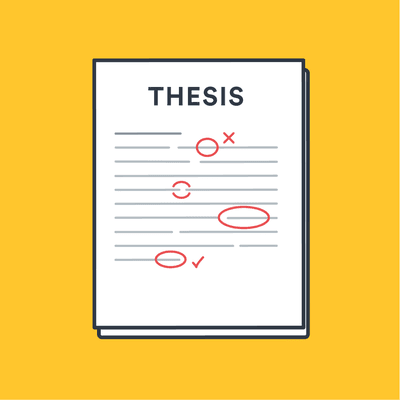
1. Review your institution's guidelines
2. take a break before you read anything, 3. determine how to proofread your thesis, 4. use online tools, 5. read your thesis in a different order, 6. read your thesis out loud, 7. reach out to your peers, frequently asked questions about proofreading your thesis, related articles.
Now that you've finished your thesis , it's time to proofread it. You'll need to do this several times to ensure that you submit a solid thesis that's free of grammatical mistakes and typos. We've put together a few tips that can help you optimize the proofreading stage of your thesis.
Your institution will likely have specific guidelines for formatting your thesis. Be sure to double-check the guidelines for layout and format issues, including:
- paper size and margins
- running head
- page numbering
- line spacing
Take time to read through the guidelines again and keep them handy as you proofread your thesis.
The proofreading stage is also a good time to check your citations or references . Whether you're using Harvard, APA (American Psychological Association), MLA (Modern Language Association) or some other citation style, make sure that your citations are correct.
Give yourself some time off before you start proofreading your thesis. This allows you to return to your work with fresh eyes. Ideally, you should plan to take a break of several weeks before you begin proofreading; however, even a short break can help you refocus and catch more mistakes.
Some people like to proofread their thesis on screen, while others like to print it out and read it on paper. Whichever method you choose, be aware that you can't read it all at once. Rather, make a plan for how you want to approach proofreading and stick to it. You'll generally want to break up your process by chapter or section.
Consider breaking down your thesis proofreading process in one of these ways:
- by paragraph
Several online tools can help you with proofreading and some of them are even free. Use tools like Grammarly or Proofread Bot for proofreading or Readable.com or Slickwrite to critique your grammar and writing. A quick Google search will show you that there are dozens of tools out there that can help you with your thesis!
Week 1 : Read a chapter a day, watching out for major issues in argumentation, use of evidence, and organization.
Week 2 : Complete substantive revisions and check that all citations are correct. Use a reference manager like Paperpile to create accurate citations and bibliographies.
Week 3 : Re-read each chapter, checking for any additional surface errors. Double-check that your formatting aligns with your department’s thesis requirements.
Try reading your work backwards or in a random order. This approach often works better than reading your work from beginning to end.
By switching up your expectations, you will catch more errors. Plus, starting at the end allows you to keep your conclusions in mind as you read and helps you to verify that you've proven your thesis statement.
The best way to catch grammatical, stylistic, and organizational mistakes is to read your work aloud to yourself. Hearing your own words greatly increases your ability to find typos and errors.
Keep your eye out for the following common errors:
- subject-verb agreement
- faulty predication
- misplaced modifiers
- tense changes
- incorrect citations
If you have friends or peers who are also writing theses, or who have completed them, reach out for advice and help. For instance, blogger Pat Thomson suggests setting up a proofreading deal with a friend.
Also, you might find it useful to join or start a writing group. These groups build accountability and provide writers with support for all stages of the research and writing process.
The length of the proofreading process depends on the length of the thesis. Plus, you should plan to take a couple of weeks off before you start proofreading. It's also a good idea to break up longer projects by chapter or section.
Always double-check your institution's guidelines for the general layout, including:
If you know someone who is willing to proofread your thesis, then definitely ask! Friends and peers who are also working on theses, or who have recently finished, can provide you with useful insights about the grammar, style, and structure of your thesis.
As part of your proofreading plan, you should create a checklist of items that you want to watch out for while proofreading your thesis. Your checklist might include:
- Spelling and typos
- Verb tenses and subject-verb agreement
- Sentence structure
- Layout and formatting
- Citations and/or references
- Consistency of style
- Organization
- Overall flow
You should plan to proofread your thesis as many times as it takes to ensure that you submit a polished and professional work. Typically, however, most thesis writers proofread their work around three to four times.
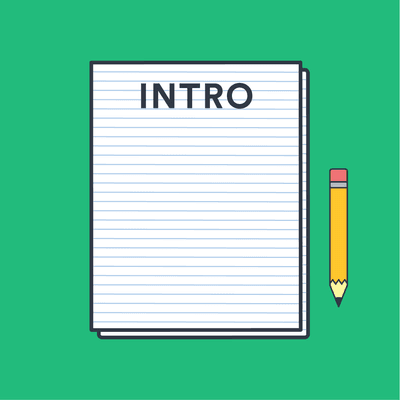
How to Proofread Your Thesis
How-to-proofread-your-thesis.
Helen Eassom, Copywriter, Wiley
May 11, 2017
You just finished writing a 300-page master's thesis or PhD dissertation. It took you two years of late-night researching, organizing citations, and coming up with mountains of data to support your thesis.
Before you impress the committee with your text, you have to proofread this massive tome several times. The journalist's aphorism, "Edit, edit again, and edit some more" is an absolute truth when your professional future is on the line.
With this in mind, here are some practical tips on how to proofread your thesis or dissertation.
Review the Rules Before you set out to write your thesis, the committee laid out the rules. Review the style set forth by your academic institution. Depending on your department , your thesis or dissertation may follow American Psychological Association (APA), Modern Language Association (MLA), or Chicago/Turabian style.
- Grammarly contains free tools through its website or a Google Chrome extension.
- Readable.io counts the words in your text, examines your readability level, and gives you a score that correlates to a particular reading level. Your thesis or dissertation should have a college reading level for academic work.
- Slick Write represents another online tool that critiques your writing, analyzes for passive voice, and even judges the flow of your writing.
- Proofread Bot lets you paste text to check for errors.
- Ginger receives high marks from users for its thoroughness and user-friendly interface.

Watch our Webinar to help you get published
Please enter your Email Address
Please enter valid email address
Please Enter your First Name
Please enter your Last Name
Please enter your Questions or Comments.
Please enter the Privacy
Please enter the Terms & Conditions

Your Guide to Publishing

3 article-level metrics to understand your work’s impact

How to write a clinical case report

How to Write A Lay Summary for Your Research

Think. Check. Submit your way to the right journal

10 Ways to Reduce the Word Count of Your Research Paper

Writing for Publication- How Can a Structured Writing Retreat Help?

Infographic: 6 Steps for Writing a Literature Review

How to turn your dissertation into journal articles

How to Choose Effective SEO Keywords for Your Research Article | How to Write a Journal Article
Related articles.
Wiley supports you throughout the manuscript preparation process,
Get a quick understanding of the metrics that matter for your research, what they can show you, and where to find them.
Editor-in-Chief of Clinical Case Reports, Charles Young, discusses what makes a good case report.
Late with a review report? Find out how to handle the situation in this blog post from Andrew Moore, Editor-in-Chief of Bioessays.
Find out more about "Think.Check.Submit", a cross-industry initiative designed to support researchers on the road to publication.
Do you need some guidance on writing concisely? This presentation, originally published on Editage Insights, offers some quick tips to help you keep to your desired word count in academic writing.
Professor Rowena Murray looks back on a recent writing retreat and discusses how such retreats can help overcome writer's block.
This infographic sets out six simple steps to set you on your way to writing a successful and well thought out literature review.
Guidance for PhD students planning to turn dissertations into published journal articles.
Find 5 helpful tips about using keywords in your research article to help journals, and your article, be found more easily by researchers.

Helping authors to bypass article formatting headaches
Improving the author's experience with a simpler submission process and fewer formatting requirements. Release of the pilot program, free format submission.

Get Published: Your How-to Guide
Your how-to guide to get an in-depth understanding of the publishing journey.
FOR INDIVIDUALS
FOR INSTITUTIONS & BUSINESSES
WILEY NETWORK
ABOUT WILEY
Corporate Responsibility
Corporate Governance
Leadership Team
Cookie Preferences
Copyright @ 2000-2024 by John Wiley & Sons, Inc., or related companies. All rights reserved, including rights for text and data mining and training of artificial technologies or similar technologies.
Rights & Permissions
Privacy Policy
Terms of Use
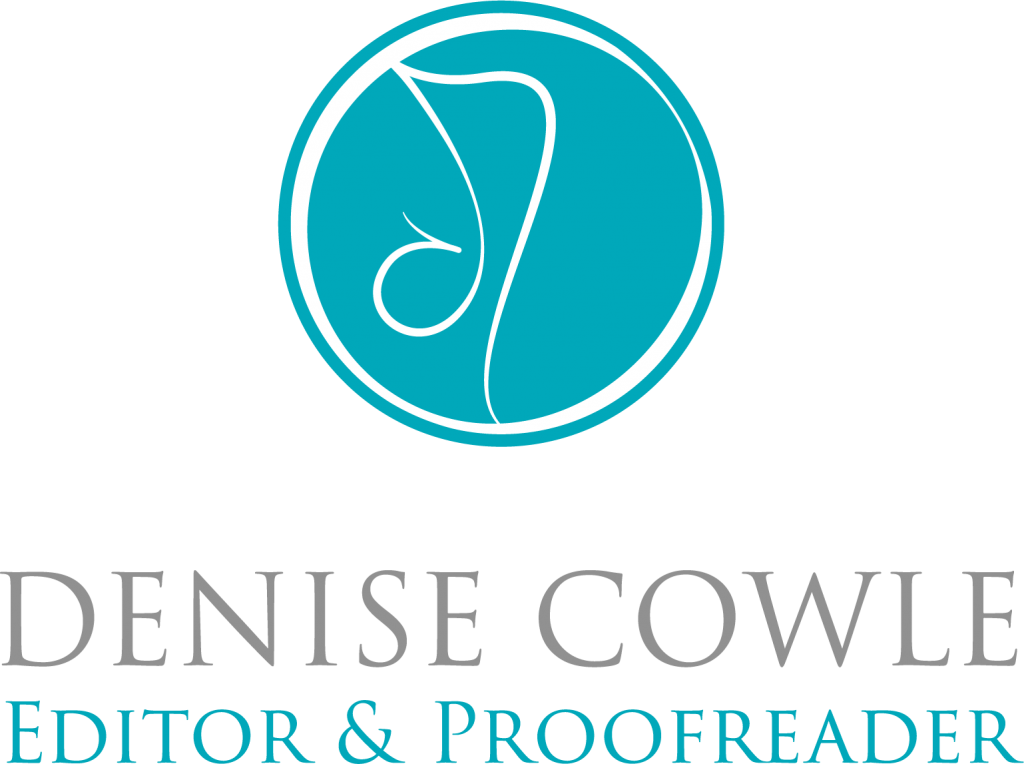
THE EDITING ESSENTIALS BLOG
How to proofread your dissertation or thesis – 12 essential tips
- Denise Cowle
- November 21, 2016
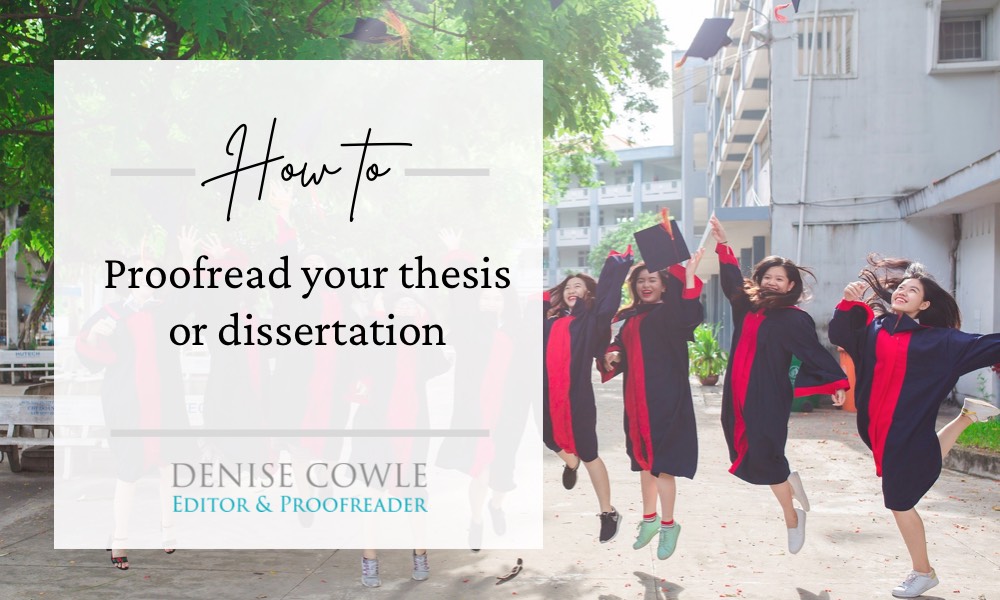
1 Give yourself enough time
2 overall structure, 3 formatting, 4 consistency, 5 spelling, punctuation and grammar.
Word, go home. You’re drunk. #spellcheck #amediting pic.twitter.com/dgqZNddYlx — Denise Cowle, non-fiction editor (@dinnydaethat) August 22, 2016
6 Acronyms and abbreviations
7 plagiarism, 8 referencing system.
- The author-date system (for example, the Harvard system) uses in-text citations like this (Cowle, 2016) in conjunction with a full reference list, where titles are ordered alphabetically.
- The short-title system uses a note marker in the text and puts the full reference in the equivalent footnote or endnote. When the title is used again, a new note number is inserted in the text, but a much shorter version of the title is listed. This system is often used in the humanities.
- Numbering systems , such as Vancouver and author-number referencing, are frequently used in Science, Technology, Engineering and Medicine (STEM).
9 Make several passes
- Cross check headings, sub-headings and page numbers against the table of contents
- Check figures and tables are in the right order and numbered and captioned correctly
- Check in-text citations match your reference list
- Are you references styled according to your institution’s requirements?
- Have you defined all your acronyms and abbreviations where they first appear?
- Lastly, read through to check spelling, grammar and sense.
10 Get outside help
11 know what your institution allows, 12 university language centres.
- English isn’t your first language
- you have a learning difference such as dyslexia
- you are a native English speaker but find the transition to using academic English challenging.
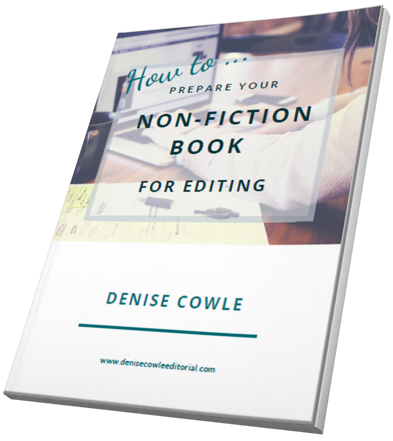
FREE DOWNLOAD
Learn how to prepare a clean file your editor will love
Recent Posts
How we’re ramping up the editing podcast, the best reference books to help your business writing, how the editing toolkit can help your writing, everything you need to know about my pdf mark-up course.
- 5 questions to answer before writing your business book
Leave a Reply Cancel reply
Your email address will not be published. Required fields are marked *
The Editor's Note
Other articles for you – check them out.

The Editing Podcast has had a revamp for 2022! Find out more about the new broadcast schedule for The Editing Podcast and how you can

You don’t need me to tell you that your business writing should be as polished as possible if you want to avoid your potential customers

We all feel differently about business writing – for some of us it’s a pleasure to sit down and let the words flow, but for others

You may have noticed that I recently launched a PDF mark-up course. How to Mark Up PDF Page Proofs will help anyone who works with
HOW CAN I HELP?
- LEARNING CENTRE
CONTACT DENISE
CONNECT WITH ME
Copyright © 2014–2022 Denise Cowle Editorial | All Rights Reserved | Privacy Policy | Terms and Conditions
PhD Thesis Proofreading and Editing Services
Prepare your thesis for publication with Scribbr’s world-class thesis proofreading and editing services.
- 4.6 Trustpilot score (based on 13,367 reviews)
- Starting at £0.013 per word
- Academic writing authority
Comprehensive proofread
Through direct changes and in-text comments, our thesis editors give feedback on:
- Punctuation
- Sentence structure
- Verb tenses
- And much more…
Using Word’s Track Changes feature, you stay in control and decide which changes to accept or reject.
Feedback on academic style
Besides avoiding language mistakes, your writing should also follow academic conventions. Our editors are specialised in academic texts. They will improve and give feedback on the use of:
- Informal or imprecise language
- Inflated and redundant phrases
- Inconsistencies in tense and voice
Personalised language tips
To help you become a better academic writer, your thesis editor will provide an overview of your most common mistakes in grammar, punctuation and style. With our in-depth guides, you’ll learn how to recognise and correct your own errors.
Popular thesis editing add-ons
Structure check.
To avoid structural issues, your thesis editor can review the organization of your thesis. With the Structure Check , you can rest assured that:
- Sections and chapters are ordered correctly
- No sections and elements are missing
- Headings are clear and consistent
- Transitions between paragraphs are smooth
Clarity Check
A fresh pair of eyes can spot issues with your logic or clarity. Through in-text comments and two checklists , the editor’s feedback will focus on:
- Logical argumentation and conclusions
- Clear presentation of concepts and theories
- Contradictory information and arguments

Experienced thesis editors
All Scribbr editors are carefully selected through a rigorous testing and selection process called the Scribbr Academy . Only 4% of applicants succeed in becoming qualified Scribbr editors. That’s how we ensure the highest quality thesis editing!
At Scribbr we try to assign your thesis to an editor who is knowledgeable and passionate about your topic. However, our thesis editors are language specialists, not academic experts in your field.
Customers rate our proofreading service excellent!
Echt een top service.
Echt een top service Dit is echt precies wat ik nodig had voor mijn scriptie. Iemand die er met een frisse blik naar kijkt, dank je wel Annemarie.
A different job!
The assignment was distinct from my previous work. It was not a revision in academic style, but rather the creation of a text for a website for a company operating in the tourism-receptive sector. As always, Scribb has consistently met my expectations. Richard is a highly competent individual, and with his feedback, he has consistently provided valuable guidance. I have been utilising their services for many years, initially for academic texts, but also for professional projects, it is reassuring to have a review from him. Furthermore, by doing this, I am improving my writing in English.
It keeps a record of your reference…
It keeps a record of your reference list and is very accurate once you input the right keywords.
The revision was very careful
The revision was very careful, every punctuation and grammar was clearly marked, and in addition, he kindly told me why the revision was made. Thank you very much
Korrektur Bachelorarbeit
Ich habe bei scribbr meine Bachelorarbeit korrihieren lassen und war mit den Korrekturen sehr zufrieden. Ich habe für eine Korrektur innert 7 Tagen bezahlt und erhielt meine Arbeit bereits nach vier Tagen vollständig korrigiert zurück! Die Korrekturen waren sehr professionell, die Anmerkungen und Änderungen wurden stets begründet und waren sehr umfassend. Die Kommentare haben mir sehr dabei geholfen, meine Arbeit noch verständlicher aufzubauen. Ich bin mir dem ganzen Service von scribbr sehr zufrieden und kann meine Bachelorarbeit nun mit gutem Gewissen einreichen. Es lohnt sich!
Scribbr has helped me with NUMEROUS cites
Scribbr has helped me with NUMEROUS APA citing requirements. With each one it not only provides the source cite in my selected format, but it also gives a parenthetical, and narrative cite. This service has saved me huge amounts of time and work.
Sehr schnelle und professionelle…
Sehr schnelle und professionelle Korrektur. Top!
Wertvolle Kommentare
Die Kommentare des Lektors haben mich zu einer neuen Formulierung des Abstract veranlasst. Dieser ist nun wesentlich aussagekräftiger.
Master-Thesis Lektorat
Ich habe meine Master-Thesis eingereicht und habe wie auf der Plattform angegeben innerhalb von 7 Tagen die Korrektur mit allen Verbesserungsvorschlägen erhalten. Die Feedbacks konnte ich sehr gut nachvollziehen und auch umsetzen.
Nützlicher Service mit Schwächen
Habe den Service vor allem wegen der Plagiatsprüfung gebucht. Das "Vorergebnis" ergab eine hohe Wahrscheinlichkeit für Plagiate. Letztlich waren es hauptsächlich die Literaturverweise. Der Score war dann nach der Buchung auch weit weniger schlimm als in der "Vorprüfung". Das ist schon eine Art "scare tactic" ;) Dennoch ist die Prüfung sinnvoll, und ich habe noch Kleinigkeiten angepasst. Wirklich gut waren die Rechtschreibprüfung und die Stilvorschläge. Das hat für mich persönlich am meisten gebracht. Die KI-Prüfung ist noch recht rudimentär, und funktioniert aktuell nur für kurze Abschnitte. Bei 5000 Zeichen zeigte mir die Prüfung eine KI-Wahrscheinlichkeit von 99% an (lol), was natürlich absurd ist. Alles in allem aber ein guter Service, den ich weiterempfehlen würde.
Cara is great and trusted.
Tolle Korrektur
Vielen Dank, Sarah, für die Korrektur. Ich bin sehr zufrieden. Auch die Ergänzungen, die ich vornehmen muss, sind äußerst hilfreich. Teilweise musste ich über mich selbst lachen, als ich sah, was ich geschrieben habe. Deine Anmerkungen waren großartig. Schon bei meiner Bachelorarbeit war ich sehr zufrieden mit der Überprüfung, und das ist auch diesmal wieder der Fall. Jetzt muss ich nur noch die Masterarbeit bestehen . Scibbr kann ich wirklich jedem empfehlen. Das Geld ist es mir wert, und es ist keine Abzocke, sondern man bekommt genau das, was man gebucht hat.
Danke! Besser wäre nur noch, wenn die Änderungen im Überarbeitungsmodus gewesen wäre, sonst alles super!
Grosse Hilfe & dazu gelernt
Ich bin mit dem Prozess von Scribbr wirklich gut zurecht gekommen und der Ablauf war einfach und klar beschrieben. Termine werden sehr gut eingehalten und die Korrekturen sind umfassend und haben mir sehr geholfen. Ich werde Scribbr wieder verwenden.
Ich bin vom Service von Scribbr begeistert!
Ich bin vom Service von Scribbr begeistert. Zum einen gibt es auf der Webseite viele nützliche Tools, die man kostenlos nutzen kann. Zum anderen ist der kostenpflichtige Service auf eine sehr hohen Niveau mit kompetenten LektorInnen und termingerechter Lieferung!
Positively impressed
I was positively impressed by the quality and relevance of the observations and suggestions for corrections. The best thing about it all is that there was nothing left to add, and everything that was necessary was immediately resolved, in addition to having indicated the justifications for corrections, which made me learn a lot about English... That was a class, thank you very much.
Super geholpen
Einfach super!
super und schnell
Excellent outil de citation automatique
Cela va faire un ans que j'utilise l'outil Citation Generator Scribbr. Il est totalement gratuit et s'adapte au mode de citation désiré. La possibilité de l'intégrer en tant qu'add on sur le navigateur de recherche est un vrai plus. Il est possible de créer différentes listes et des les ranger sous des dossiers pour s'organiser. C'est très pratique et cela rend l'écriture beaucoup plus simple. Il y a encore quelques difficultés sur la générations automatiques des citations en partant de papier academiques sur différents site-web. Mais les mises à jour améliorent nettement l'expérience à chaque fois. La dernière que j'ai remarqué permet de modifier la citation via le add on avant de l'ajouter à une liste et ça fait une réelle différence. Je préfère largement cet outil au traditionnel Mendeley où il faut presque tout faire manuellement. Je trouve Scribbr beaucoup plus intuitif et moderne. De plus, des moderateurs répondent très rapidement via le chatbot du site. Excellent !
Thesis proofreading in 3 simple steps
Upload and select pages
Upload your entire thesis and only select the pages that need proofreading and editing.
Select a deadline and services
Choose between a 12-hour, 24-hour, 3-day or 7-day deadline and select additional services.
Share your guidelines
Share your supervisor’s guidelines and feedback so the editor can take them into account.
What makes Scribbr stand out?
Consistently high quality
With smart technology and an expert team, we check the quality of editing to ensure every document meets our high standards.
Safe and confidential
Documents are uploaded via a secure connection, and you can delete your document from our server at any time.
Helpful customer support
Have a question? Start a live chat, send us an email or give us a call. We are available from 08:00–23:00 every day.
100% happiness guaranteed
If you’re not completely happy with your editor’s work, we’ll offer you a free second check or a refund – whatever works for you.
Your thesis editor is ready! Are you?
Ask our team.
Want to contact us directly? No problem. We are always here for you.
- Chat with us
- Email [email protected]
- Call +44 (0)20 3917 4242
- WhatsApp +31 20 261 6040

Frequently asked questions
Yes, if your document is longer than 20,000 words, you will get a sample of approximately 2,000 words. This sample edit gives you a first impression of the editor’s editing style and a chance to ask questions and give feedback.
How does the sample edit work?
You will receive the sample edit within 24 hours after placing your order. You then have 24 hours to let us know if you’re happy with the sample or if there’s something you would like the editor to do differently.
Read more about how the sample edit works
At Scribbr, we promise to make every customer 100% happy with the service we offer. Our philosophy: Your complaint is always justified – no denial, no doubts.
Our customer support team is here to find the solution that helps you the most, whether that’s a free new edit or a refund for the service.
Yes, in the order process you can indicate your preference for American, British, or Australian English .
If you don’t choose one, your editor will follow the style of English you currently use. If your editor has any questions about this, we will contact you.
Yes, you can upload your document in sections.
We try our best to ensure that the same editor checks all the different sections of your document. When you upload a new file, our system recognizes you as a returning customer, and we immediately contact the editor who helped you before.
However, we cannot guarantee that the same editor will be available. Your chances are higher if
- You send us your text as soon as possible and
- You can be flexible about the deadline.
Please note that the shorter your deadline is, the lower the chance that your previous editor is not available.
If your previous editor isn’t available, then we will inform you immediately and look for another qualified editor. Fear not! Every Scribbr editor follows the Scribbr Improvement Model and will deliver high-quality work.
Yes, our editors also work during the weekends and holidays.
Because we have many editors available, we can check your document 24 hours per day and 7 days per week, all year round.
If you choose a 72 hour deadline and upload your document on a Thursday evening, you’ll have your thesis back by Sunday evening!
When you place an order, you can specify your field of study and we’ll match you with an editor who has familiarity with this area.
However, our editors are language specialists, not academic experts in your field. Your editor’s job is not to comment on the content of your dissertation, but to improve your language and help you express your ideas as clearly and fluently as possible.
This means that your editor will understand your text well enough to give feedback on its clarity, logic and structure, but not on the accuracy or originality of its content.
Good academic writing should be understandable to a non-expert reader, and we believe that academic editing is a discipline in itself. The research, ideas and arguments are all yours – we’re here to make sure they shine!

Your Writing, Expertly Edited
Get your work meticulously edited and proofread by PhD-qualified academic writing specialists, who know exactly what markers want .

Your All-In-One Solution
Our flagship service includes both editing and proofreading . Here’s what we take care of:
- Fix typos, misspellings, punctuation issues and ensure consistency of your spelling format (e.g., UK or US English).
- Undertake light rewriting of poorly presented sentences, to improve readability and ease of understanding. If substantial rewriting is needed, we’ll provide suggestions.
- Highlight areas where clarification and additional explanation are needed.
- Ensure that your in-text references are in the correct style, formatted correctly and are included in the end-text reference list.
- Ensure that your reference list is correctly formatted.
- Highlight areas where additional references are needed (e.g., sweeping statements, unfounded arguments, etc.).
- Generate the table of contents page, lists of figures and tables.
- Ensure consistent style for figure and table captions.
- Insert captions where we are able to, or highlight areas where captions are needed.
- Ensure consistency of heading levels and styles.
- Ensure correct page numbering (e.g., roman numerals for pre-matter).
- Ensure that your format/page layout is in line with your institute’s requirements.
What exactly you get
Every editing and proofreading project includes the following key deliverables:

A perfectly edited document
You’ll receive a clean, finalised version of your document, fully edited and proofread. You’ll also receive a second version with all changes tracked , as well as our comments and suggestions to improve your writing further.

A detailed plagiarism report
If you’d like, we can run a comprehensive plagiarism scan on your document and provide you with a detailed report that outlines potential plagiarism issues and provides a similarity index. This is included free of charge.

A certificate of editing
If your university requires a formal certificate of editing or confirmation letter, we’ll draft this according to your institution’s specific requirements. We can also provide copies of invoices and receipts if required by your sponsor.
The Grad Coach Difference
Editors are a dime a dozen and there’s always someone who can do it cheaper. Here’s what makes Grad Coach’s editing and proofreading service different.

Academic Writing Specialists
Our PhD-qualified editors specialise in academic writing, so they know exactly what markers want.

Combined Editing & Proofreading
Our service includes both editing and proofreading, while others charge separately for each.

Full Plagiarism Reporting
In addition to editing and proofreading, we can also provide a plagiarism report , completely free of charge.
Get Your Dissertation Edited Today
Or book a free, no-obligation consultation .

Frequently Asked Questions
Here are some of the most popular editing-related questions we receive.
Editing & Proofreading
How do you edit and proofread.
Our editing and proofreading process is 100% manual - in other words, it's handled by a team of highly qualified human editors, not machines . We don't use any automation software or tools, as nothing can beat the quality and accuracy of human editing.
Our editing team consists of a diverse mix of Doctoral and Master's-qualified language specialists . The team is managed by Dr Eunice Rautenbach , who holds both a Master's and Doctoral degree in language practice. All team members have extensive academic editing experience, are native English speakers (from the US, UK and SA) and have worked on numerous dissertations, theses and research projects.
Can I see an example/sample of your editing?
Certainly . You can download a sample editing and proofreading project here .
Will you sort out my references and citations?
Yes . As part of the editing process, we will ensure that your references and citations are in the correct format (e.g., Harvard, APA, etc) as per your university's requirements (you'll need to advise us what these are).
However, keep in mind that we can't fill in incomplete references or find the relevant sources for you (as it's impossible for us to know which sources you've referenced). We also cannot check whether the references you have are accurate or suitable for the arguments you make in your writing.
Can you fix/build my table of contents?
Yes , we can create a table of contents based on the headings and subheadings throughout your dissertation or thesis. This table of contents will include the respective page number for each heading or subheading.
Can you lower my word count?
Yes - as part of the editing process, we will edit your work for concision. However, we cannot guarantee a specific word count or percentage reduction, as this would risk cutting out important content.
Can you check my work for plagiarism?
Yes - we can provide a detailed plagiarism report with every editing and proofreading project. However, please keep in mind that universities use a variety of plagiarism-checking services. Therefore, if your university provides you with a plagiarism-checking facility (as they often do), you should double-check your score on that system.
How long does the editing and proofreading process take?
It depends on the length of the document, the overall quality of the writing (i.e., the number of issues to be resolved) and our project load at the time of submission.
Generally speaking, we can complete a standard dissertation/thesis of 20,000 words within 2-3 days , but this varies depending on the factors above. Therefore, we strongly recommend that you pre-book your editing with us for a specific date. For pre-booked projects, we can provide a guaranteed timeline, which is generally shorter than that of "walk-in" projects. Please email us to pre-book your project.
Can you provide a certificate of editing?
Yes , certainly. We can issue a certificate according to your university's requirements. We can also sign any paperwork required by your university as proof of editing.
Will my document be treated as confidential?
Yes , absolutely. Your work will be treated as strictly confidential and will never be shared or published. We will gladly sign a non-disclosure agreement (NDA) with you if you wish.
How much does editing cost?
Our fee is based on the total word count of the document. This includes the body content and the reference list (as we need to review this). You can also include the appendices if you wish, but it's generally not required.
Click here to view our pricing or book a free consultation to discuss your project.
When should I submit my document to you?
Generally, editing and proofreading should be the very last step in your writing process. This ensures that you don't "undo" any editing work, or introduce new typos or grammar issues.
However, if your supervisor has specifically instructed you to get your work edited before submitting it to them for final review, you should follow their instructions. If you're unsure which approach to take, get in touch with us.
Can you edit my dissertation/thesis as I complete each chapter?
We can, but we don't recommend it . By editing chapter by chapter, consistency is reduced and there is a strong chance that there will be conflicts between document versions in terms of references, page, table and figure numbers, and so on. As a result, a lot of the work will be "undone" and you'll need to spend a lot of time revising and checking each section.
How much time should I factor in post-edit to make corrections?
We recommend that you factor in a day or two to make your final corrections after receiving your document back from us. This is not essential (as you can just accept all our edits "as is"), but it is a good idea to have a buffer in case you want to make any additions or revisions. You might also need to fix issues highlighted by the edit, e.g., regarding clarity of meaning or problems flagged with your referencing.
Can you do a second review of my document after the first edit?
We can review your document as many times as you need , but each review is charged separately. In other words, we cannot provide a second review (after we've edited and proofread) free of charge.
Can you check that my Conclusions and Recommendations represent all my findings?
This is beyond the scope of language editing, as it involves data analysis and interpretation. If you would like assistance with this, we can assist with 1-on-1 coaching , where we review your work critically and provide in-depth feedback (you can view a sample of this here ).
Can you write my abstract (or exec summary) for me?
No , we can't. As part of the editing process, we will improve the quality of your writing, but we cannot write any section for you. Having any section written for you would constitute academic misconduct.
Can you rephrase text to reduce my plagiarism score?
No , we can’t. While we may undertake some very light rewriting of poorly constructed sentences to improve readability and ease of understanding, we cannot revise content to reduce plagiarism, as we are not familiar with the articles/sources being referenced.
Can you arrange the separate sections of my document?
No , we cannot arrange (or rearrange) sections of content on your behalf, as this may impact the core meaning and/or the thread of argument.
That said, if we feel that a section could be structured better for clarity, we will comment on this and make suggestions. Additionally, we will check that your headings and subheadings are numbered sequentially and are consistent in style.
I still have questions…
No problem. Feel free to email us or book an initial consultation to discuss.
Still have a question? Email us or book a no-obligation consultation .
What our clients say
We've worked 1:1 with 3000+ students . Here's what some of them have to say:
David's depth of knowledge in research methodology was truly impressive. He demonstrated a profound understanding of the nuances and complexities of my research area, offering insights that I hadn't even considered. His ability to synthesize information, identify key research gaps, and suggest research topics was truly inspiring. I felt like I had a true expert by my side, guiding me through the complexities of the proposal.
Cyntia Sacani (US)
I had been struggling with the first 3 chapters of my dissertation for over a year. I finally decided to give GradCoach a try and it made a huge difference. Alexandra provided helpful suggestions along with edits that transformed my paper. My advisor was very impressed.
Tracy Shelton (US)
Working with Kerryn has been brilliant. She has guided me through that pesky academic language that makes us all scratch our heads. I can't recommend Grad Coach highly enough; they are very professional, humble, and fun to work with. If like me, you know your subject matter but you're getting lost in the academic language, look no further, give them a go.
Tony Fogarty (UK)
So helpful! Amy assisted me with an outline for my literature review and with organizing the results for my MBA applied research project. Having a road map helped enormously and saved a lot of time. Definitely worth it.
Jennifer Hagedorn (Canada)
Everything about my experience was great, from Dr. Shaeffer’s expertise, to her patience and flexibility. I reached out to GradCoach after receiving a 78 on a midterm paper. Not only did I get a 100 on my final paper in the same class, but I haven’t received a mark less than A+ since. I recommend GradCoach for everyone who needs help with academic research.
Antonia Singleton (Qatar)
I started using Grad Coach for my dissertation and I can honestly say that if it wasn’t for them, I would have really struggled. I would strongly recommend them – worth every penny!
Richard Egenreider (South Africa)
Get A Quote For Your Project
Get an online quote in less than 60 seconds, or book a no-obligation consultation .
Thesis editing and proofreading services
Our expert editors ensure your thesis meets the highest academic standards, with flawless academic language, precise referencing, and perfect formatting.
A sample of our thesis editing services
We meticulously edit and proofread your thesis to refine its grammar, style, and overall structure. Your thesis undergoes a combination of the three levels of editing displayed below. You can also view a completely edited thesis here .
We will proofread your thesis to remove all errors from it. Your edited thesis will have the following improvements:
- Refined grammar and tenses
- Correct punctuation, spelling, and usage
- Adherence to university guidelines
- Accurate formatting and referencing in APA, Chicago, Harvard, and many more styles
- Clear and readable graphs, tables, and figures
Our thesis editors will improve the quality of your academic writing. Your edited thesis will have:
- Improved word choice and sentence structure
- Reduced repetition and redundancy
- Fewer ambiguities and logical gaps
- Enhanced flow, coherence, and paragraph structure
Our thesis editors will enhance your academic writing through detailed comments. Their in-depth feedback will include:
- Suggestions for improved arguments, logic, and clarity
- Refinement of the overall thesis structure
- Help with elaborating on your analysis and original research
- Comments pointing out any missing or incomplete thesis sections
Additional thesis editing services
Plagiarism checking.
We run your thesis through our in-house plagiarism checking software to ensure that your work does not come under fire for plagiarism.
Referencing
We format your thesis according to the guidelines prescribed by your university, prioritizing coherence and readability.
We refine and cross-check the citations and references in your thesis to ensure that they conform to the prescribed guidelines.

What happy customers say about us
4.6/5 (2,346 reviews).
Very trustworthy and extremely efficient
I had an academic document proofread by the papertrue team. They not only corrected numerous grammar and spelling issues, they also advised on certain expressions according to my target audience. And the best, they did so over night... extremely fast, extremely good, and trustworthy service. Will be coming here again for the next publication.
Even my tutor can not find these errors
Thank you for editing my document on time. The editor pointed my attention to my commonly made mistakes; missing words, incorrect spelling and grammatical inconsistencies throughout the document. I was happy to receive both a tracked and a clean version of the edited document. I will happily recommend PaperTrue to my friends, and I will myself come back on a later occasion.
I have been using their services for 1 years now, and the only word that could describe this Papertrue is excellent. English is my second language, and every time, when I send my paper, I learn a lot from their feedback, comments and suggestions. Also, every my email have been answered very quickly. A very good value for money.
Great proofreading and editing!
PaperTrue has done a great editing/Proofreading on my friend's thesis. The thesis was accepted promptly without any further query or demand for amendment. We really appreciate their work.
Best editing service ever!
PaperTrue is the most helpful proofreader I experienced. They are fast, professional and careful. With their help, my paper got A or A-! so excited! Thanks to PaperTrue, I can have more time on other subjects, which really saved my life! Very much appreciated their professional assistance. Thanks a million!
Wonderful services
The proofreaders and editors at papertrue did a wonderful job of improving my dissertation. Almost all the errors were gone and the sentences were reworded to make its style more academic. I will tell my friends at the university about your high quality proofreading.
Review of Thesis - Effect of Nanopolymers in Paints
I found Paper True on the internet and decided to use them because of their high star rating and tremendous reviews that were relevant to what I needed. My German niece asked me to review her thesis and after struggling with it for over 8 hours and 6 pages later I knew I needed help. Paper True delivered within 2 days, the time frame I gave them. Not only did they deliver a document with all corrections and helpful comments suggested on the side(Tracked) but another one that was already corrected (Clean). The Thesis was 100% better and I was thrilled.
PaperTrue is a life saver
PaperTrue allowed me to expedite my writing process and helped me hand my paper in on time. I took a nap after sending my paper in and wake up to a well edited final draft. It's a lifesaver for college students!
Good option for ESL
Since English isn't my first language, I needed a professional proofreading service, just for my peace of mind. After some research I found PaperTrue, found some good reviews and tried it. It is a great service on a fair price. I would come back for more :)
Our expert editors

Yvonne Vaz Managing Editor
Expertise in sociology and politics
Years of experience
Documents edited and reviewed
Paige Scofic Senior Editor
Specialization in science fiction and fantasy novels
Angela Desmond Managing Editor
Expertise in American literature and marketing
Susan Howell Business Editor
Key interest in media studies and communication
documents edited
Aaron Murphy Managing Editor
Specialization in data science and machine learning
documents edited and reviewed
Stephanie Helberg Humanities Editor
Key interest in psychology and philosophy
Documents edited
Olivia Hagerman Senior Editor
Expertise in poetry, fiction, and world literature
Nicholas Lovell Managing Editor
Expertise in film studies
Kelly Stauber Managing Editor
Expertise in advertising and marketing
Arthur Zigman Senior Editor
Expertise in literary criticism
Amy Trahant Humanities Editor
Background in history, politics, and sociology
Nancy Rothbard Business Editor
Expertise in finance and business administration
Katelyn Lane Science Editor
Specialization in biology and chemistry
Jordan Almeida Senior Editor
Specialization in statistics and economics
Ker Gibbs Science Editor
Background in economics
How it works
The industry's best customer experience, 24/7 customer service until and after delivery, we're here for you until you are 100% satisfied, free revision of your edited thesis, frequently asked questions.
We offer a 5% discount to first-time users of our thesis editing services. Further, we have special discounts for students throughout the academic year. Register on our website, and keep an eye out for our emails!
Yes. You can customize your order to choose the kind of editing you want for your thesis. We offer thesis proofreading, copyediting, referencing, formatting, feedback, plagiarism checking, and more. Feel free to contact us by chat, email, or phone to get a custom quote.
Yes, our editors are well-versed with citation styles from all fields of study, such as the American Psychological Association (APA) style, Harvard style, Chicago Manual of Style (CMOS), Oxford Standard for the Citation of Legal Authorities (OSCOLA), Modern Language Association (MLA) style, American Medical Association (AMA) style, and many more.
Yes, we point out any arguments or ideas in your thesis that need more substantiation; we suggest how you can further develop these points by citing relevant literature, resolving ambiguities in your ideas, or expanding on your arguments. We will also ask you thought-provoking questions to help you come up with new points based on the subject matter.
Yes, our editors can help ensure that your literature review highlights the gap(s) in the existing research; we aid you in emphasizing this research gap using compelling academic language without ambiguities, redundancies, or logical errors.
We can certainly point out segments of your thesis that need to be replaced with more original work, particularly extensive passages quoted or paraphrased from external sources. We do not rephrase, rewrite, or modify the content of your thesis, since this can harm the academic integrity of your work.
We edit all the references in your thesis in accordance with your specified guidelines. If we find that you've skipped important details in the entries, we will signal those missing points to you in detailed comments. We do not, however, create the reference list for you, as only you possess all the required information about your sources.
We have editors from diverse academic backgrounds who specialize in working on master's and PhD theses from every domain. Based on your field and the requirements of your thesis, our editorial coordinators will pair you up with the editor best suited to your needs.
Yes! We will edit your translated English thesis. When we work on your thesis in English, we work towards ensuring that your writing is up to global standards without compromising on your research and its arguments.
© All rights reserved
- Terms of service
- Privacy policy
- Self publishing services
- Dissertation
- Research paper
- Journal article
- Admission essay
- Personal statement
- Annual report
- Website content
- Marketing material
- Legal document
- Job Applicant
- Résumé
- Cover letter
- Partner with us
- Case studies
5% Off On AI + Professional Editing Services!
Avail our in-depth, accurate and fast AI + Professional editing services at an even more affordable price.
Get My 5% Discount Now
Your Discount Code has been emailed to you!
If you would like to place your order now, your discount code is also provided below. Use the button to copy the code, then click here to place your order.
Discount Code : Copy
Discount Code Copy

All The Support You Need To Succeed In Your PhD
Since 2017 we’ve offered an unparalleled level of support and guidance to thousands of phd students from around the world. we’ve got everything you need to feel connected and supported as you navigate your phd journey., we’re more than just proofreaders.
Whether you’re looking to supplement the support you receive from your institution, or just to feel part of something bigger, we offer a comprehensive range of support services to cover every part of the PhD journey. Everything we offer is thoughtfully designed, and expertly delivered. By PhDs, for PhD students.
How can we help?
Free phd writing guides.
We've created the world's most comprehensive PhD-thesis writing knowledge base.
Mock PhD Viva Exam
Have a practice run of your viva with a world renowned examiner & boost your confidence.
PhD Workshops & Writing Retreats
Learn valuable PhD writing and research skills from academics in virtual workshops and writing retreats.
Thesis & Chapter Proofreading
Thesis writing course.
Stop worrying about how to structure your thesis with expertly designed lessons.
One-on-One Coaching
Every PhD is different. That's why we offer one-on-one coaching to help you succeed.
Get Free PhD Writing Tips From The Thesis Writing Experts
PhD writing tips, productivity tools, and motivational advice from people who really know what they’re talking about. Every Monday and Friday, straight to your inbox. Trusted by 26,000+ students.
I have read and agree to the terms & conditions

Our Mission:
Doctor, sooner.
Since 2017 we have been dedicated to one mission: helping students feel less isolated and more confident as they navigate their PhDs.
By bringing you access to world class educators, thesis coaches, editors and mentors, we’re able to offer you an unparalleled suite of free and paid for services that will help you feel more connected and better equipped as you navigate your PhD.
We Come Highly Recommended
“Without this personalised assistance, there is no way I would have felt comfortable paying a proofreader. The PhD Proofreaders couldn’t have done a better job. It was such a relief. The thesis they sent back read so beautifully and I was awarded no corrections.”
"You and your excellent professional skills can always cheer me up and bring me more confidence at the last stage of this long matharon."
“Without The PhD Proofreaders, there is no chance I would have submitted my thesis on time. I wouldn't have passed first time, either. My thesis was let down by poor English, so the money I spent was worth every penny. It was a great investment.”
"After talking to Elizabeth [a PhD coach], I didn’t wake up in the middle of the night last night for the first time in months! Ahh to have this feeling over my destiny again is very nice".
"Your solidarity with developing countries' PhD students who would never be able to afford other similar services, makes you standout as not only a high quality proofreading services provider but also an understanding and personal service supplier. This unique approach puts you at the helm of the pack."
How Can We Help?
Author First, Quality First
Editing Services

Thesis Editing Service
Plagiarism check, our expertise, subject areas, publication support packages.

Individual Services
Additional services and information.
- Website Localization
- Book Translation
- Game Localization
- Machine Translation
- Software Localization
- E-learning Localization
- Video Abstract
- Graphical Abstract
- Poster Presentation
- Research Press Release
- Plain Language Summary
- Editing Pricing
- Publication Support Pricing
- Payment Methods
- Enago Wallet
- Payment FAQs
- Quality Focus
- Editor Profiles
- Client Testimonials
- Editing Samples
- ISO Certificates
- Service FAQs
- Partners & Memberships
- Success Stories
- Enago Academy
- Conferences and Webinars
- GET A QUOTE

How to Proofread a Thesis: A Guide

Anyone who has written one knows that a thesis is a monumental task. Months or even years of research, writing, and revision go into creating a thesis. The moment you type the last word, you may feel an incredible sense of relief. But you aren’t done yet! Now it’s time to begin the second most challenging part of writing a thesis: editing and proofreading. Your thesis will no doubt go through various rounds of editing as you reread and rewrite different sections, and your advisor provides their input. But even after all that, there is one critical step left, which is thesis proofreading. Is thesis proofreading that important? How can you go about thesis proofreading anyway?
What is Thesis Proofreading? Proofreading is a separate step where you carefully review a text to ensure its technical accuracy. Thesis proofreading should be conducted after all of your major content editing has been finished. This is to save both time and effort. After all, why bother reviewing a section that will be deleted later? If you proofread before you are done editing, you may have to go back and proofread new sections that are added or changed during the editing process. Thesis proofreading should only take place once you are really, for real, finally done with editing.
In addition to technical accuracy, such as spelling, grammar, punctuation, and formatting, thesis proofreading should double-check that your word choice is correct. Proofreading your thesis will also give you the chance to check one more time for clarity and typographical errors. Finally, thesis proofreading will let you make sure that your word choices, use of abbreviations, and use of capitalization are consistent throughout your text. Thesis proofreading is a critical step because any errors in a written document make the document seem less professional and trustworthy. This is doubly true when it comes to academic circles. In this article, we talk specifically about English proofreading, but keep in mind that thesis proofreading is a critical step no matter what language you wrote your masterpiece in.
How Do You Proofread a Thesis? When it comes to performing the English proofreading of your thesis, you have a couple of options. The first option is to proofread your own thesis. This can save you some money, but it can also involve a lot of time and difficulty. Proofreading your own work is always a challenge, thesis or otherwise, because you will bring your own bias as the writer to the table. You wrote it, and you know what you wanted to say. For that reason, it can be very easy to miss your own errors. This is why many thesis writers choose to hire thesis proofreading services. If you are a non-native English speaker, hiring thesis proofreading services to perform English proofreading is often your best option. English proofreading is difficult for native speakers too, and experienced dissertation editors employed by thesis proofreading services can often provide you with a very high quality of service.
Your thesis is probably long, and so it can help to do your thesis proofreading in sections rather than all at once. More importantly, do not attempt to proofread your thesis immediately upon finishing your final draft. You need as much time and space between you and your thesis as possible before you begin the proofreading process. If you aren’t engaging the help of thesis proofreading services, put your thesis on the shelf for at least 72 hours, preferably a week, before you begin the thesis proofreading process. That way, you can look at it with fresh eyes, and you’ll be more likely to catch the errors you have made.
What Should I Look For When Proofreading? Anyone doing their own thesis proofreading should begin with a checklist of items to review. Common errors that should be looked for include:
- Inconsistent use of UK and US English (especially common among non-native speakers)
- Spelling errors (spell check is useful but will not catch everything)
- Typographical errors (abort instead of about is a nasty error but will be missed by spell check!)
- Inconsistent abbreviations (U.S. vs. US)
- Punctuation errors (improper use of apostrophes, inconsistent use of the Oxford comma, en dashes instead of em dashes)
- Grammatical errors (incorrect use of a/an/the, pluralization, etc.)
The easiest way to eliminate inconsistent use of UK vs. US English is to make sure the language of your document is set for your preferred version of English and then perform a quick spell check using the spell-check tool. This should take care of most spelling issues, but also keep a careful eye out as you read through your paper for any inconsistencies you may have missed.
One additional item you’ll want to take special care with is use of contractions (don’t vs. do not) and apostrophes. In general, academic writing is formal and use of contractions is discouraged. Some style guides (APA, for example) specifically discourage the use of contractions. Similarly, non-native speakers often have a tendency to overuse apostrophes with plural possessives. English proofreading and writing strongly advise against this, as native speakers are taught not to write this way. For example, “the dogs’ group” should be “the group of dogs” and “the publics’ opinion” should be “public opinion” or “the opinion of the public.” In addition, you should make sure that your formatting is consistent. Are headlines aligned the same way? Did you use bold for one section and italics for another? Are the margins correct? Always refer to the guide provided by your university to ensure you have properly formatted your thesis before submission.
Where Can I Find Help with Thesis Proofreading? There are a number of helpful guides and tools out there to assist you in thesis proofreading. Google Scholar can help you double-check your citations, as can citation generators. OWL Purdue online also has many helpful writing tips. Thesis proofreading services, as mentioned above, are also a great resource. In addition to thesis proofreading services, academic proofreading services are also available. What is academic proofreading? Simply put, academic proofreading is specifically targeted to academics. Academic and thesis proofreading services employ experienced dissertation editors who are familiar with specific academic disciplines to review academic articles and thesis manuscripts. Because of their familiarity with the subject matter, they are fast and thorough.
Our English Editing Services

Top Impact Scientific Editing New
Top Impact Scientific Editing Service offers in-depth scientific and developmental

Substantive Editing Popular
Substantive Editing, our popular flagship service, is specifically tailored for quality.

Copy Editing
Our professional Copy Editing service is designed for quality-conscious authors.
Our Experts

Similar Articles

7 Proven Strategies to Proofread Effectively

How are Editing, Copy Editing & Proofreading Different?
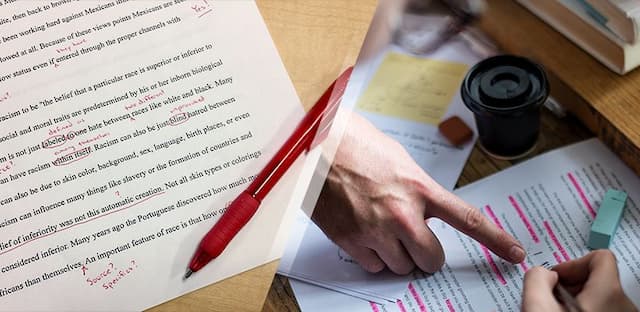
Editing vs. Copyediting: What's the Difference?

What Are The Different Types of Book Editing?

What Are the Steps in Editing a Document?
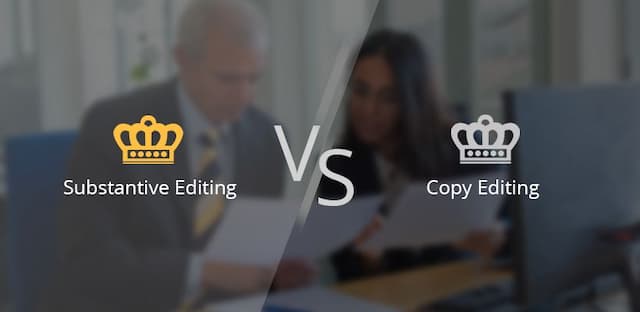
Substantive Editing vs. Copyediting : What's the Difference?

Why Copy Editing is Important

A Step-by-Step Guide to Journal Editing

We use cookies to offer you a personalized experience. By continuing to use this website, you consent to the use of cookies in accordance with our Cookie Policy.
Dissertation Editing Service: Ensure Academic Success Fast, Affordable, Professional
Get dissertation editing services from an academic editor with years of experience editing dissertations, theses, and academic papers. Our dedicated Dissertation Editing service ensures top-notch editing, style refinement, and adherence to guidelines, enhancing the professionalism of your academic writing. With a focus on swift turnaround times, meet your trusted partner for the best dissertation editing services.
Try before you buy.
Get an instant quote. Services are available 24/7.
- Dissertation Editing Service: Ensure Academic Success
Need Dissertation Editing Services?
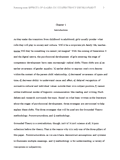
When it comes to your dissertation, every word and sentence matters. That's where our Dissertation Editing services come into play. Our team of seasoned editors understands the significance of a well-crafted thesis . With years of academic editing experience, they are able to meticulously review your document, ensuring it adheres to your university's guidelines.
Our editing service for dissertations focuses on enhancing the English proficiency of your work. Go beyond basic editing services to ensure your dissertation truly shines . Whether you're a PhD candidate or a university student, we tailor our editing services for dissertations to meet your specific instructions. Transform your dissertation into the best dissertation it can be.
Our commitment to providing top-notch Dissertation Editing services extends beyond surface-level corrections. We understand that the perfect thesis requires more than just editing; it demands a keen eye for detail and an understanding of the nuances of academic writing.
Why Should I Get Dissertation Editing Services?
Transform your dissertation into the best possible version it can be with a polished thesis statement and a strong structure.
When it comes to your dissertation, every word and sentence matters, and that's precisely where our Dissertation Editing services excel. Our team of seasoned editors, well-versed in academic writing and with years of experience in editing dissertations, can ensure your dissertation is error-free and adheres to your university's guidelines.
Our editing services for dissertations offer rapid turnaround times , ensuring that your edited document, with its improved thesis statement and precise word count, is returned to you promptly. Your academic work deserves nothing less than the expertise of our editors who specialize in dissertation and thesis editing services, making sure your university paper is edited to perfection.
Why Choose Scribendi's Dissertation Editing Services?
Our dedication to providing the best thesis editing and Dissertation Proofreading sets us apart. We understand the importance of a clear and compelling thesis statement. Our editors work diligently to refine your document, focusing on word count, style, and overall quality. Ensure that your academic writing meets the highest standards so that your dissertation is a testament to your years of hard work.
With swift turnaround times, you can trust us to meet your deadlines, ensuring a stress-free editing process. Whether you're looking to i mprove your PhD thesis or need assistance with a dissertation, our Dissertation Editing services are your pathway to success.
Get top-notch Dissertation Editing services and thesis proofreading. Our team of experienced editors can refine your document diligently, paying meticulous attention to word count, style, and overall quality. Don't compromise on the quality of your academic achievements; choose unparalleled editing that elevates your dissertation to the pinnacle of excellence.
Can I get a discount on Dissertation Editing services?
Enhancing your academic work has never been more affordable with our exclusive student discount for Dissertation Editing services.
Our team of expert editors is ready to take your thesis to the next level. Whether you're a PhD student or pursuing a master's degree, we understand the importance of a well-crafted dissertation. With our 10% student discount , you can enjoy substantial savings while receiving top-notch editing services for your dissertation.
Our experienced dissertation editors are well-versed in academic writing and can help you refine your work, focusing on aspects like style, English proficiency, and adherence to university guidelines. Don't miss out on this limited-time offer to improve the quality of your thesis while saving on Dissertation Editing services.
Simply use the coupon code on our Student Discount page to start improving your writing today. Our editing service for dissertations is dedicated to helping students like you succeed in their academic journey. Take advantage of this opportunity to elevate your thesis or dissertation to its highest potential with our discounted Dissertation Editing services.
What will you receive with Dissertation Editing services?
- An edited document in which misspellings, grammar errors, and typos have been corrected
- Changes and suggestions to help improve clarity, flow, structure, and readability
- Formatting of your citations and references to the style guide of your choice, if desired
- Tracked revisions so that you can see and review all the changes that have been made
- In-depth critical commentary on your paper
- A short summary of the work that has been done and any major concerns
What types of documents can you use Dissertation Editing services for?
- Dissertations
- Thesis and dissertation proposals
Generative AI has become increasingly relevant in academia and can impact academic services at Scribendi; click here to see Scribendi’s policy on generative AI .
Rest assured, whether you're handling commercially sensitive data or conducting groundbreaking scholarly analysis, as part of our Dissertation Editing services, your manuscript's confidentiality is our top priority.
We ensure the utmost privacy for your work. All uploads and downloads to our secure server are encrypted , and our stringent privacy policies are in place to safeguard your academic research and personal data.
Dissertation editing services are just a click away . We are committed to ensuring the highest level of security and quality for your academic work. Obtain an instant quote below, and order now .
Get an Instant Quote and Place Your Order
| File | Word Count | Include in Price? |
|---|
| Dissertation, Thesis, or Proposal Editing | (up to 1,500 words) | ||
| Dissertation, Thesis, or Proposal Editing | (up to 4,000 words) | ||
| Dissertation, Thesis, or Proposal Editing | (up to 6,000 words) | ||
| Dissertation, Thesis, or Proposal Editing | (up to 8,000 words) | ||
| Dissertation, Thesis, or Proposal Editing | (up to 20,000 words) | ||
| Dissertation, Thesis, or Proposal Editing | (up to 35,000 words) | ||
| Dissertation, Thesis, or Proposal Editing | (up to 50,000 words) | ||
| Dissertation, Thesis, or Proposal Editing | (50,000 to 100,000 words) | ||
| Dissertation, Thesis, or Proposal Editing | (100,000 to 150,000 words) | ||
| Dissertation, Thesis, or Proposal Editing | (150,000 to 250,000 words) | ||
| Dissertation, Thesis, or Proposal Editing | (250,000 to 400,000 words) |
Dissertation Editing Services FAQ
How much do dissertation editing services cost.
The cost of dissertation editing services can vary depending on factors like word count, turnaround time, and the level of editing needed. At Scribendi, you can use our instant quote widget to select the cost and turnaround time that best suit the needs of your document, including your word count, and your deadline. Our experienced editors have years of experience editing and proofreading dissertations and theses. We offer competitive prices for our editing services, ensuring your work is polished to perfection.
Should I get editing services for my dissertation?
Absolutely! Getting professional editing services for your dissertation is crucial for academic success. Just as Personal Statement Editing ensures your application is ready to go, dissertation editing ensures your thesis is polished to perfection. We offer top-notch editing services tailored to your university's requirements, enhancing your document's style, English, and overall quality. With years of experience, our editors are able to meticulously review your work to meet the highest academic standards. Don't underestimate the importance of proofreading and editing!
Is it ethical to pursue dissertation editing services?
Yes, seeking dissertation editing services is not only ethical but highly advisable. Ethical editing services help you improve the style, English, and overall quality of your work. It's a responsible choice to invest in professional editing to elevate your academic writing as good dissertation editing services focus on integrity and academic excellence.
How do I choose an editing service for my dissertation?
Choosing the right editing service for your dissertation is crucial. Look for experienced editors with a strong background in academic writing and a focus on thesis and dissertation editing. Consider factors such as word count, turnaround time, and expertise in your field. Read reviews and ask about their years of experience editing dissertations. Ultimately, select a service that aligns with your needs and values, ensuring your work becomes the best dissertation it can be.
- Link to facebook
- Link to linkedin
- Link to twitter
- Link to youtube
- Knowledge Hub
Thesis/Dissertation Writing Guide
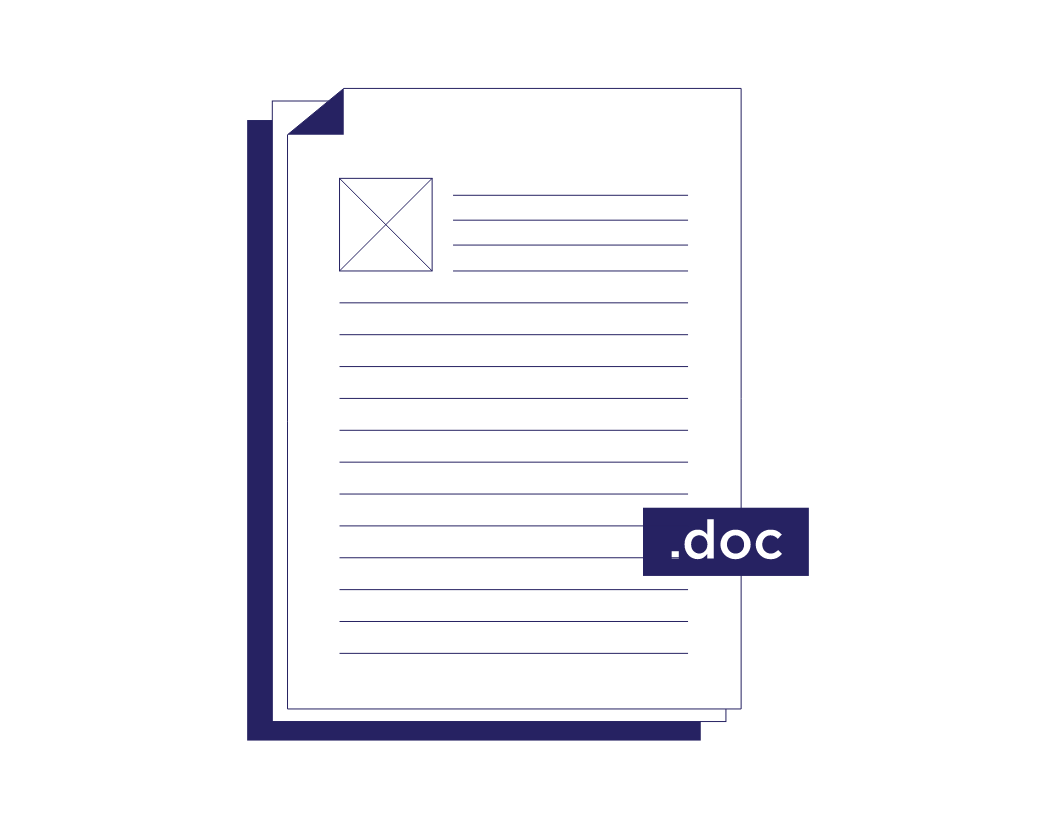
- 35-minute read
- 12th February 2021
How to Write a Great Thesis or Dissertation
This guide will explain how to write a great undergraduate or master’s thesis or dissertation (see our Essay Writing Guide for advice on shorter academic documents).
Use the list to the left to select an aspect of thesis writing to learn more about.
What Is a Thesis?
A thesis is a longer, in-depth paper written at the end of an undergraduate or master’s degree. It will be on a subject you choose yourself and involve self-directed research, although with some help from a tutor or advisor. The thesis may make a significant contribution towards your final grade, so it is very important. We will use the word “thesis” throughout this guide, but some also call this final project a “dissertation.”
The idea of an undergraduate thesis (also known as a “senior project” or “senior thesis”) is to demonstrate the skills and knowledge developed during your studies. Not every undergraduate will need to do a senior thesis, but they are common in some schools and may be required if you’re planning on enrolling for a postgraduate course.
A master’s thesis is the final project on a master’s degree. It will usually be longer and more detailed than an undergraduate thesis. You may also be required to make an original contribution (i.e., put forward a new argument) as well as demonstrating your knowledge.
Depending on your subject area, your thesis may be empirical or non-empirical:
- Empirical theses are more common in the sciences. They involve collecting and analyzing data, then writing this up with your findings and conclusions.
- Non-empirical theses are more common in the humanities. They involve researching existing data, ideas, and arguments, then offering a critical analysis or making an argument of your own based on your research.
In this guide, we will discuss both types of thesis, highlighting any differences as they become relevant. We will not look at how to write a doctoral dissertation, which is usually even longer and more complex, but many of the same skills apply.
KEY NOTE: Most colleges and universities have detailed guidelines for how students should write a thesis, including any stylistic or procedural requirements. The advice below will be designed to apply to any thesis-length project, but you still need to check what your institution requires if you are writing a thesis or dissertation.
Planning a Thesis or Dissertation
The first step in writing a thesis is making a plan. This may include several steps.
Selecting a Topic
Since a thesis is self-directed, you will need to decide what to research. This is an important decision, so don’t rush it! Tips for selecting a thesis topic include:
- Think about your interests – Try to pick something that reflects your interests. Is there something from your prior studies you wish you’d had more time with? Some subject area that you found especially engaging? Something you read about that you didn’t get the chance to study? Something relevant to your career plans? A thesis is a major project, so make sure it focuses on something you care about!
- Aim for originality – Try to find a unique issue or problem to address. This doesn’t necessarily mean conducting entirely original research (it will be hard to find something nobody has ever written about). But you can try to find a new angle on an existing idea or problem (e.g., applying an established theory in a new area). This is especially important for a master’s thesis, where originality is valued.
- Think about the scope – Try to pick a problem that you think you can answer within the word limit of your thesis. This should be something fairly in depth so you can show off your skills and hit the word count. But it should also be narrow enough that you can finish it in time and without massively overwriting!
- Do some research – If you have an idea for something you might want to write about, do a little preliminary research. This will help you focus your idea by seeing what other people have already said on the subject. It may even help you identify a new angle from which to approach the issue. And if you do a little research on a few potential topics, you can be sure you’ve picked the right one for your thesis.
- Be realistic – As with the scope of your chosen topic, you need to be realistic about what you can do with the time and resources available. Would your topic require access to specialist equipment or resources? Would it require traveling? Are there any potential costs? Think about how easy it will be to conduct your research.
- Ask for advice – Once you have a basic idea of what you might want to write about, ask your tutor or lecturer for advice. They will have a good sense of whether it is a suitable subject for a thesis and may have suggestions for how to approach it.
And once you’ve selected a topic, you’ll want to check what your school requires for a dissertation. Usually, you will need to submit a research proposal of some kind for approval. Minimally, though, you will need to decide on a research question.
Setting a Research Question
The “ research question ” is the question you’ll seek to answer in your thesis. This should narrow the focus of your thesis down even more, giving you a distinct problem to address. To formulate a research question, try to come up with something that:
- Clearly sets out the focus of your research
- Has a limited enough scope to answer in one paper
- Is complex enough to warrant in-depth discussion and investigation
- Is relevant to your field of study (e.g. it fills a gap in the research)
For instance, you may be interested in viral marketing techniques. However, since this would be a very broad topic for a thesis, you would then need to look for a specific question to answer, such as how do social media influencers affect a viral advertising campaign? You could even narrow this down further by framing a question around a specific case study.
We can see some examples of “good” and “bad” questions below.
In this case, the “bad” question is too broad. It would take several book-length essays to even start answering! The second question is much narrower, focusing on the effect of climate change on one species in one region, making it easier to answer.
In this case, the “bad” question is too narrow. It could be answered by searching on google and simply setting out the policies you find. The second question, meanwhile, is open to debate and does not have a simple answer, so there is scope for good research.
As with your thesis topic, once you have come up with a research question, speak to your advisor or tutor. They may have some guidance on how to refine it.
Writing a Research Proposal
Some colleges will ask you to write a research proposal – i.e., a detailed description of your proposed research project – before they approve your thesis. And even if you don’t have to do this, writing a research proposal can be a useful way to organize your thoughts before you begin writing. This may include information on the following:
- A proposed title
- Your research question/ objectives
- Why your research is significant (e.g., what it contributes to your field of study or how it could be used to help solve a practical problem)
- An initial literature review (i.e., a look at existing research in the subject area)
- A thesis chapter outline (see below for tips on structure)
- Your methods (i.e., how you will conduct research or experimentation)
- A justification for why you will study the topic in the manner set out
- Logistical and ethical considerations
- Potential limitations on your research project
- A reference list or bibliography
- A research timeline breaking down when you will complete each stage of the project, including writing up and editing your thesis
- Any information on projected expenses or budget
You won’t always need all the above. This will depend on your school’s requirements, your subject area, and the scope of your thesis project. In essence, though, you need to set out what you want to achieve, why you want to do this, and how you intend to accomplish it.
One thing to note here is that your plan may change later on. Research can be difficult to predict, so you may need to adapt your plan after you start work on your thesis. You might find, for example, that your research question was too broad. Or you might encounter an obstacle that forces you to adapt your plans. This is completely normal!
As such, don’t stress too much about making your research plan “perfect.” Your real aim is to prove that you’ve thought seriously about your thesis, that you’re capable of planning a research project, and that you’re committed to producing high quality work.
Once your school has approved your plan, you will be ready to begin work on your thesis.
Conducting Research
Any thesis will require engaging with past research. This may be for a literature review before conducting your own experimental study. Or, in a more theoretical thesis (e.g., historical analysis or literary criticism), it may make up a large proportion of your work.
You will have done some research already as part of your proposal. But most of it will come after your thesis has been approved. Exactly what this will involve will depend on your subject area and research question, but we will look at a few common issues below.
Creating a Research Plan
Creating a plan will help you focus your research. To do this, break your thesis down into steps and set aside time for each task you need to complete. You’ll then know exactly how much you need to do and how long you will need to do it. This may include:
- Studying existing literature on your research topic
- Designing a study or experiment
- Conducting primary research
When creating this plan, be realistic about how long each stage will take. And make sure to leave time for writing and editing your thesis once you’ve finished the research!
Top Tip! You can actually start writing while you’re still doing research or gathering data. For example, if you’re working on your design study, you can start making notes for your methodology section. This will save time when you come to write your thesis, as you should have all the information you need in one place, ready to be written up.
Selecting Sources
Part of efficient research is selecting the best sources for your project, as reading every single book or article on a subject would take far too long. This may involve:
- Using what you know from your studies as a starting point for finding relevant sources. Asking your tutors or lecturers for recommendations is another good idea.
- Checking the reference lists in good sources for similar titles.
- Developing a strong search strategy to find sources online or in databases. This means testing keywords and using filters to narrow searches.
If you are doing research online, make sure you’re using reliable academic sources, too. For instance, a reputable journal or a university website should be trustworthy. But a blog post with no cited sources or author information will not be suitable for academic writing. Likewise, Wikipedia is not an academic source, though you can check the citations to find sources.
Top Tip! If you are writing a thesis in the humanities, the majority of your work may involve analyzing, criticizing, and comparing secondary sources or ideas from these sources. As such, it is vital to find and engage with the major thinkers in your subject area.
For instance, if you were writing about behavioral psychology, and your thesis did not acknowledge or engage with B. F. Skinner – a hugely influential figure in behaviorism – at any point, your marker may assume you haven’t done enough research or that you have missed something important. And this may affect how they assess the rest of your work.
Even if your thesis is mainly based on primary research, it is important to show that you’ve researched past work in your subject area. If you overlook a major thinker or some recent research relevant to your own study, it could end up losing you marks!
Taking and Organizing Notes
Writing a thesis will be much simpler if you have good notes to work from. So when you’re reading a paper or book relevant to your research, make sure to:
- Take notes that are neat enough to understand when you read them.
- Note all publication details for any source you might use in your thesis.
- Organize notes so you can find them when needed (e.g., using colored labels to sort paper notes visually and having a well-labeled folder system on your computer).
- Highlight important information so that you can find it later.
Other tips for efficient note taking include:
- Use abbreviations or shorthand to aid note taking (especially in lectures).
- Summarize key passages and ideas rather than writing them down verbatim. This will make note taking quicker, as well as helping you absorb the information.
- Focus on the parts of sources most relevant to your research question.
- Record page numbers and source information for anything you make notes about.
- Use an audio recording device to record lectures.
This should leave you with detailed, easy-to-use notes when you come to write your thesis.
Data Collection and Analysis
If you are conducting empirical or experimental research, part of your research will involve data collection. This is where you gather your own information to help answer your research question. The three main styles of research include:
- Quantitative – Research that depends on numerical data. This can be based on a scientific experiment, questionnaires, or many other methods.
- Qualitative – Research that focuses on the distinguishing characteristics or traits of the thing studied, such as how something is subjectively experienced. Qualitative methods include things such as interviews, focus groups, and observations.
- Mixed methods – Research that combines quantitative and qualitative methods. The aim here is to get a more rounded picture of the thing being studied.
The same applies to data analysis methods, which can also be quantitative or qualitative. But the research approach you adopt will have a major influence on how you answer your research question, so you need to think about this carefully! Key factors may include:
- Past research – How have other studies in your subject area been done? Is there something about a past study you could draw on or improve upon? Is there existing data that you could use (e.g., from past studies or metastudies)?
- Practicality – How easy will it be to conduct your study with the resources available? How will you collect and store data? How will you analyze it after collection?
- Sampling – Where will you gather data? Will you be able to generalize it to a wider population? If you are working with human subjects, are there ethical concerns?
- Problem solving – What obstacles might you face when gathering data? Do you have time to run a pilot study (i.e., a test study) before you begin?
You may have decided on much of this while writing your research proposal, but these are issues you should consider throughout the study design process. You may also want to work with your thesis advisor to finalize your plans before collecting data.
From a planning perspective, the key is giving yourself enough time to carry out each stage of the data collection and analysis. If you rush, things are more likely to go wrong!
Writing Up Your Thesis
The structure of a thesis.
The structure of your thesis will depend heavily on the subject area. As such, we will look at how to structure empirical and non-empirical theses separately. However, as elsewhere, make sure to check what your school suggests about structuring your thesis.
Empirical Thesis Structure
Most empirical theses have a structure along the following lines:
- Title page – A page with key information about your thesis, typically including your name, the title, and the date of submission. Your school should have a standard template for thesis title pages, so make sure to check this.
- Abstract – A very short summary of your research and results.
- Content page(s) – A list of chapters/sections in your thesis. You may also need to include lists of charts, illustrations, or even abbreviations.
- Introduction – An opening chapter that sets out your research aims. It should provide any key information a reader would need to follow your thesis.
- Literature review – An examination of the most important and most up-to-date research and theoretical thought relevant to your thesis topic.
- Methodology – A detailed explanation of how you collected and analyzed data.
- Results and discussion – A section setting out the results you achieved, your analysis, and your findings based on the data. You may want to include charts, graphs and other visual methods to present key findings clearly.
- Conclusions – A final section summarizing your work and the conclusions drawn.
- References – A list of all sources used during your research.
- Appendices – Any additional documentation that is relevant to your study but would not fit in the main thesis (e.g. questionnaires, surveys, raw data).
We will look at some of these sections in more detail below.
Non-Empirical Thesis Structure
In the humanities and other non-experimental subject areas, your thesis may be structured more like a long essay, with each chapter/section adding to your argument. The structure will therefore depend on what you are arguing, but a common style is:
- Abstract – A very short summary of your research.
- Main chapters – A series of chapters where you address each main point in your argument. Ideally, each chapter should lead naturally to the next one.
- Appendices – Any additional documentation that is relevant to your work but would not fit in the main thesis (e.g., questionnaires, surveys, raw data).
We will look at some of these sections in more detail below. For the main chapters of your thesis, though, you will have to break your argument down into a series of points. To do this, review your notes with your research question in mind, then:
- Write down your main arguments in as few sentences as possible. Try to imagine explaining it to a friend or your advisor in simple terms.
- Expand each sentence with a series of detailed subpoints or premises.
- Look at how each subpoint contributes to the overall argument and use this as a guideline for structuring your thesis. Ideally, each chapter will address a single aspect of your argument in detail, complete with supporting evidence.
It can help to treat each chapter in a humanities thesis like an essay of its own, with an introduction (i.e., what you will address in the chapter at hand), a series of sub-points with evidence, and a short conclusion that leads on to the next chapter.
Writing Your Thesis
Next, we’ll look in detail at some of the sections most theses will include. As elsewhere, though, don’t forget to check your school’s requirements for the structure and content of a thesis, as some elements will vary (e.g., the length of the abstract, or whether to include separate “Results” and “Discussion” sections). If you cannot find this information on your college’s website or in course materials, ask your tutor or advisor for guidance.
Picking a Title
Your thesis title should give readers an immediate sense of what it is about. A good way to do this is to have a title and a subtitle based on topic and focus respectively:
- The topic is the broad subject area of your thesis (e.g., viral marketing techniques, the environmental effects of climate change, or food safety regulations).
- The focus is the specific thing that you are studying (e.g., the impact of social media, the change in polar bear populations, or whether regulations promote public health).
For instance, the following could all work as dissertation titles:
Viral marketing and social media: A case study of the role of influencer culture in the success of Old Spice’s “The Man Your Man Could Smell Like” campaign
Environmental Effects of Climate Change: A Qualitative Study of the Factors Behind Changing Polar Bear Populations in Alaska
Food Safety in America: Are Federal Policies Promoting Public Health?
All these titles give a sense of the question the thesis will answer. The first two are quite long, which can reduce clarity in some cases, but they also include information about the type of research conducted. The key is striking a balance between detail and clarity.
You may also want to check your style guide (or ask your advisor) for advice on how to capitalize titles. You can find information on title case and sentence case capitalization here .
Writing an Abstract
An abstract is like a preview, allowing readers to see what your thesis is about. As such, it should set out the key information about your study in a clear, concise manner.
The exact length and style of an abstract can vary, but typically it will be between 100 and 500 words long and primarily written in the past or present tense. It should include:
- What you aimed to do and why
- How you did it
- What you discovered
- Recommendations (if any)
It often helps to leave writing the abstract until you’ve at least got a first draft of your full thesis, as by that point you’ll have a better sense of your research overall.
Writing an Introduction
A good thesis introduction should set the scene for the reader, telling them everything they’ll need to know to follow the rest of your thesis. It should therefore:
- Establish the subject area and specific focus of your work.
- Explain why the topic is important and your research objectives.
- Offer some background information, including current theories or research.
- Provide a thesis or hypothesis (i.e., a short statement of what you will argue).
- Outline the structure of your thesis (i.e., what each chapter will cover).
It can help to have a strong opening line that will grab the reader’s attention, but this is not necessary. Try to avoid clichéd openings such as “Webster’s Dictionary defines [THESIS TOPIC] as…,” as these will rarely add anything useful to your paper.
One good tip is to write a rough introduction first, but to revisit it once you have a draft of your full thesis. This is because the introduction and conclusion should work like “bookends” to the rest of your thesis, so the introduction needs to reflect the content that follows.
The Literature Review
The literature review provides the theoretical foundations for your thesis. The idea is not just to summarize key concepts and studies, but to set up your own work by showing how it follows from existing research to offer something new. To do this, you may need to:
- Examine key theories or ideas that provide context for your study.
- Read sources critically and assess how they relate to your research.
- Look at the current state of research in your subject area.
- Reflect on the methods and theories used by other researchers.
- Explain how your work will develop or build upon current knowledge.
You can use your research question to guide this review. But it’s also worth asking your advisor or tutor for advice on literature you should read.
When writing up your literature review, make sure it has a clear structure. This might be chronological (i.e., in order of when the studies you discuss were done), methodological (i.e., organized in terms of the research style or approach), or thematic (i.e., organized in terms of what studies focused on or discussed). But you need to give it a clear sense of development, which ultimately should lead back to your own research question.
Methodology
The methodology chapter is where you explain, in detail, how you performed your research. This may be a relatively simple section of your thesis, but make sure to:
- Include something about your research approach (e.g., qualitative vs. quantitative) and why it was the best choice for your study.
- Be descriptive! Make sure to detail each step of how you gathered and analyzed data. This includes any equipment or techniques used, as well as the conditions under which you gathered your data. Ideally, a reader should be able to replicate your research from reading your methodology section.
- Justify your choices. From equipment to analysis, you should have a reason for every decision you make about the methodology of your study.
- Mention any obstacles you faced or any limitations of your chosen methods.
- Consider ethical concerns. If you had to seek approval from an ethics panel to conduct your research, make sure to detail it here.
The appendices can be useful here, as you can use them for information that is relevant but not essential for explaining your methodology (e.g., survey templates, consent forms). If you do include anything like this in your appendices, though, make sure to reference it clearly in your methodology chapter (e.g., “For more information, see Appendix C…”).
Results and Discussion
This is where you set out the results of your research, including data, analysis, and findings.
This can vary a lot depending on your subject area and school. Some use a combined “ Results and Discussion ” section, where results are presented alongside analysis. Some prefer to separate the results and the discussion into separate chapters. As such, you will want to check with your advisor about the best way to present your results.
Generally, though, reliable tips for presenting results in a thesis include:
- Offer context – Raw data may be difficult to follow, so make sure to include enough text to guide the reader through your findings. Ideally, it should be clear how everything in this section helps you to answer your initial research question.
- Focus on the most relevant data – If you’ve collected lots of data, make sure to focus on the parts that are most relevant to your research question. If you try to include everything, key findings may get lost among the information overload.
- Use visuals – If appropriate, consider using charts, graphs, tables, or figures to present results, as these can make complex data easier to visualize. However, make sure to label all charts and figures carefully so their relevance is clear.
The “Discussion” part should focus on the significance of your results. Think about:
- How the data supports (or disproves) your initial hypothesis.
- How your results compare to those of the studies in your literature review.
- Whether any problems encountered during the research, or the previously outlined limitations of your methods, affect the validity of your results.
- The implications of your study for future theory, research, and practice.
Since this is where you really dig into the value of your research, the “Results and Discussion” section may be the most important part of your thesis. As such, you should take time to make sure it thoroughly addresses your chosen research question.
Writing a Conclusion
The conclusion is where you tie everything up together. As mentioned earlier, it should work with the introduction to “bookend” your thesis. As such, it should:
- Start by briefly recapping the thesis topic and your research question.
- Summarize the main points of your argument/your results.
- Draw conclusions and explain how your research supports them.
- Consider the implications of your research (e.g., its significance for your field of study or real-life applications of your results).
Your overall aim is to briefly explain how you have answered your research question. However, make sure not to introduce new arguments or evidence in the conclusion. If you need these to support your point, they should be included in the main body of the thesis.
Referencing and Quoting Sources
In any academic document, you will need to cite sources. This typically means:
- Citing sources in the main text of your thesis.
- Adding a reference list or bibliography at the end of the document.
The details of how to do this will depend on the referencing style or system you’re using, so remember to check your style guide . However, we will offer some general tips here.
Why Cite Sources?
Referencing involves identifying the sources you’ve used in your research, usually with some kind of in-text citations and full publication information for all sources in a reference list.
There are several reasons to take referencing seriously in your thesis:
- You get to show off your research skills and ability to find relevant information.
- It is good practice to credit other thinkers for their ideas.
- It provides vital context for your own work.
- Failing to cite sources will be treated as plagiarism (i.e., using someone else’s words or ideas without crediting them), which could have negative consequences.
This last point is the most important as plagiarism is considered academic fraud. And if you’re found to have plagiarized someone else’s work in your thesis, you will lose marks.
You will need to cite a source whenever you:
- Quote or paraphrase another person’s words.
- Refer to facts or figures that aren’t common public knowledge.
- Refer to an idea or theory you found published somewhere.
- Use an image or illustration that you did not create yourself.
This should protect you from unfair accusations of plagiarism.
In-Text Citations
In-text citations come in three main types, each used by different referencing systems:
- Parenthetical Citations – This involves giving citations in brackets in the main body of your thesis. Often, this will be the author’s surname, the year of publication, and page numbers (e.g., Harvard, APA). However, some systems differ, such as MLA, which only gives the author’s surname and page number(s).
- Number–Footnote Citations – Some referencing systems indicate citations with a number in the text, then give source information in footnotes (e.g., Oxford, MHRA).
- Number–Endnote Citations – Similar to the above, number–endnote systems use numbered citations in the main text (e.g., Vancouver, IEEE). However, in this case the numbers point to an entry in a reference list at the end of the document.
And while these citation styles differ, there are some tips that apply in all cases:
- Always check your school’s style guide to find their preferred citation style.
- Make sure every source used in the main text is cited.
- Make sure that all cited sources are included in a reference list.
- Apply a consistent citation style throughout each essay.
As above, this will help ensure you don’t accidentally commit plagiarism in your writing.
Quoting Sources
Quoting sources is a great way of supporting your arguments in a thesis. However, if you are going to quote a source in your writing, you need to do it right.
The first step is knowing when to quote a source. Generally, this is most useful when:
- Your point depends on the exact wording (e.g., if you are discussing why an author used a specific term in their work).
- The original text is especially well expressed and rephrasing it would detract from this.
If you do quote a source, make sure to place the borrowed text in “quotation marks.” This shows the reader that you have taken it from somewhere else. The accompanying citation should then identify the source and the page(s) where the quote can be found.
In many cases, it is better to paraphrase a source than quote it. This means rewriting the passage in your own words, which shows that you have understood it. However, remember that you still need to cite sources when paraphrasing something.
Reference Lists and Bibliographies
Every academic document that cites sources should include a reference list or bibliography. These terms are sometimes used interchangeably, but the general difference is:
- A reference list is a list of every source cited in your thesis.
- A bibliography should include any source you used while researching your thesis (even the ones that you did not cite directly in your work).
As with citations, this may depend on the system you’re using and different referencing systems will have different rules for creating a reference list. In all cases, though:
- Make sure to check your school’s style guide for advice on whether to create a reference list or a bibliography (and what to include in it).
- Check that you know the reference formats for every source type you have used (e.g., a print book will have a different format to an online journal article).
- Make sure all references are clear and consistent.
One helpful tip for drawing up your reference list/bibliography is to keep a running list of sources as you work. In other words, whenever you find something useful during research, note down the publication details. You will then have all the information required if you need to reference it later (plus, you’ll be able to find the same source quickly if you need it).
Reference Management Software
Finally, you may want to look at using reference management software when writing a thesis. This refers to programs that store and organize your references, such as:
- EndNote – EndNote works with all major referencing systems, source types and word processors. The full version is paid, but there is a limited free version.
- Mendeley – This is a free tool for managing and citing PDF documents. It is therefore most useful when the majority of your sources are in this format.
- Zotero – This package has an internet browser plugin that can automatically import source information from websites and add citations to your work.
- RefWorks – This web-based system provides a simple way of collating sources that can be accessed from any computer with an internet connection.
Whether you use reference management software or not, you should always double check citations and the reference list before submitting your work. That way, you can be sure that the referencing in your thesis is clear, consistent, and error free.
Additional Resources
For more information on referencing in different systems, see our blog posts on:
Not every thesis will include an appendix or appendices. However, as mentioned above, you can put useful but non-essential information in an appendix.
Common examples of things that you might put in an appendix include:
- Raw test data
- Technical figures, graphs and tables
- Maps, charts and illustrations
- Letters and emails
- Sample questionnaires and surveys
- Interview transcripts
You will need to check your style guide for advice on appendices, such as whether they count towards the word limit, but standard rules for adding appendices include:
- Place appendices at the end of your document after the reference list.
- Divide appendices by topic so that each appendix contains one type of information (e.g., separate sections for test results, illustrations and transcripts).
- Start each appendix on a new page and label it with a letter or number, along with a title clarifying content (Appendix A: Instrument Diagrams, Appendix B: Test Results).
- List appendices in the table of contents at the beginning of your document.
If you then needed to point the reader to something in an appendix in the main body of your thesis, you would simply have to cite the relevant appendix label. For instance:
The interviews show that most people like ice cream (see Appendix C for full transcripts).
This lets you keep the main text of your thesis focused on the research question.
Word Count Advice
Most theses come with a suggested word count. Ideally, you will get as close to this as you can (within 10% either way is usually acceptable). Exceeding or being significantly below the word limit may lose you marks, so make sure you know what to aim for.
If you are struggling to stay within the word limit on an essay:
- Look for and cut out any repetition in your work.
- Consider whether non-essential information may fit better in an appendix (but make sure to check whether appendices count towards the word limit).
- Remove redundant pairs (i.e., terms like “each and every” or “final outcome”).
- Edit out unnecessary modifiers and qualifying terms (e.g., you can often cut words like “quite,” “very,” and “really” without losing anything of substance).
- Replace phrases with a word (e.g., “due to the fact that” = “because”).
- Cut down long or unnecessary quotations.
- Use the active voice instead of the passive voice.
If you are struggling to reach the suggested word count, you can:
- Do more research to develop your argument further.
- Add quotes or examples to support your arguments.
- Introduce alternative points of view for comparison.
The key is that anything you add to increase the word count should also add to your argument. Do not try to pad out your writing by simply adding extra words and phrases.
Editing and Proofreading a Thesis
Before submitting an essay, you will want it to be perfect. This means that you shouldn’t just submit the first draft you write. Instead, you’ll want to go over your work and refine it.
We’ve touched upon this above in our tips on staying within the word count. In this last section, though, we’ll look at editing and proofreading an essay in more detail.
The Drafting Process
A “draft” is a version of a document, with the “final draft” the finished version. And writing a good thesis will require redrafting. This might be because the focus of your thesis shifts part way through, meaning you need to tweak what you’ve already written. Or it may simply be that you wrote your introduction first and want to adjust it after finishing your conclusion.
In any case, redrafting is a good way to polish your writing and pick up extra marks (as well as to avoid embarrassing errors and typos). Typically, the process looks like this:
- First Draft – An initial version based on your thesis plan. It doesn’t matter if this isn’t perfect right away, as you’ll have a chance to improve it by redrafting.
- Second Draft – After finishing the first draft of your full thesis, go back over each chapter and make sure it fits within the document as a whole. This may include making changes to fix errors, to highlight connections between different parts of your thesis, or to make sure each section flows smoothly into the next one.
- Third Draft Onwards – Repeat the step above as required. This is vital in a thesis-length document, as it is easy to overlook typos when dealing with large amounts of text. Each time you redraft, you should need to make fewer revisions.
- Final Draft – This is the finished thesis. However, you’ll still want to do one final check to eliminate remaining typos. This final check is often known as “proofreading.”
The key to a truly great thesis is giving yourself enough time to redraft at least once or twice. Keep this in mind when working out your schedule before you begin writing.
Another point to note here is that some online companies offer to redraft your thesis for you. However, using an editing service may count as plagiarism if your work is being marked.
But it is a good idea to seek professional proofreading for your thesis.
Proofreading Your Thesis
Proofreading differs from editing because it focuses on technical errors, such as spelling and grammar mistakes, while preserving the meaning and content of your writing. As such, you can have your work proofread without falling foul of plagiarism rules.
Proofreading your own work can be difficult as it’s easy to miss errors when you’re already familiar with a document. If you do plan to proofread your own thesis, though:
- Take some time off before you begin. This will help you spot errors that you might otherwise miss from being too familiar.
- Print it out and proofread on paper instead of on the screen.
- Try reading problem sections out loud or in reverse (i.e., starting from the end of the part you’re having trouble with and working backwards).
- If you are reading it on screen, make sure to set the proofing language. In Microsoft Word, you can do this via Review > Language > Set Proofing Language .
It is almost always best to have someone else proofread your work, though. If you would like one of Proofed’s academic writing experts to check your thesis, why not upload a document today?
Jump to Section
Share this article:, got a high volume of content to edit, let our experts take it off your plate., learn more about editorial resources.
- How to Build a Winning Content Development Team
- How to Balance Deliverability and Quality in Content Production
- How to Train Legal Proofreaders for Compliance (Checklist)
- Website Copywriting Trends to Watch in 2024
- Plain English for Content Teams
- Editing for Concision
- Editing for Equality and Diversity
- Proofed Guide to AP Style
- Keyboard Shortcuts for MS Word, Chrome, and Slack
- Working with LaTeX Documents
- Dealing with URLs and Hyperlinks
- What to Do with “et al.”
- Using Google Scholar in Your Editing
- Using Ampersands
- Units of Measurement
- The Passive Voice
Looking For The Perfect Partner?
Let’s talk about the support you need.
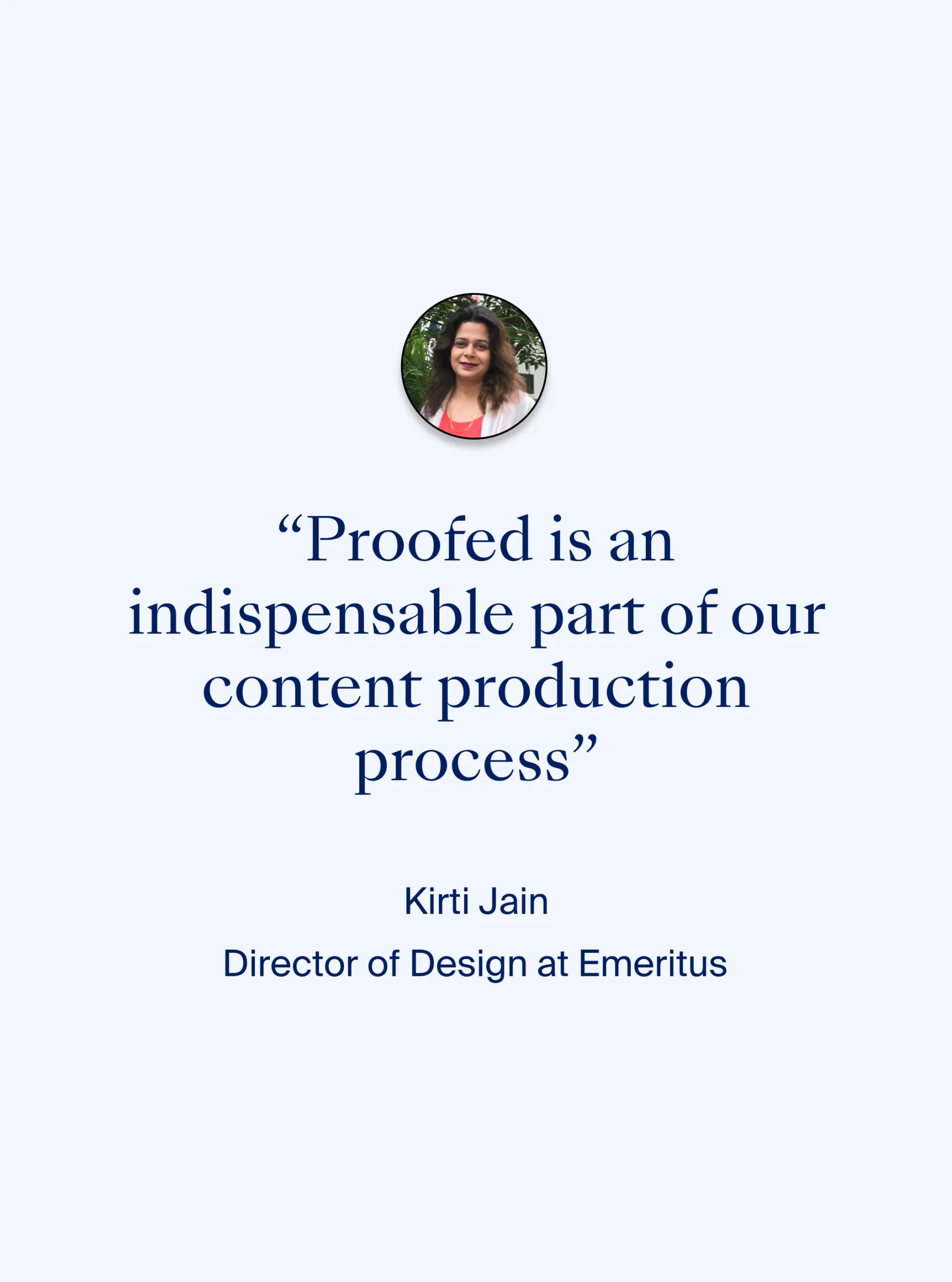
Book a call with a Proofed expert today
Free All-in-One Office Suite with PDF Editor
Edit Word, Excel, and PPT for FREE.
Read, edit, and convert PDFs with the powerful PDF toolkit.
Microsoft-like interface, easy to use.
Windows • MacOS • Linux • iOS • Android

Select areas that need to improve
- Didn't match my interface
- Too technical or incomprehensible
- Incorrect operation instructions
- Incomplete instructions on this function
Fields marked * are required please
Please leave your suggestions below
- Quick Tutorials
- Practical Skills
How to Start An Essay- Steps with Examples
Once you have a single idea to anchor your essay, build the entire piece around it. Starting an essay can be challenging; it's like revving up the engine and keeping your ideas flowing throughout. But I've got a foolproof plan for you. In this article I will show you how to start an essay and write a powerful, impactful piece for your class.
What is the Process of Writing an Essay?
Just like any task that requires organization, writing an essay follows a structured process. If you want to ensure that your essay is well-organized and not just a free flow of ideas, consider the following process:
Read and Understand the Prompt: Begin by carefully reading the essay prompt to fully grasp what is being asked of you. Break it down into manageable parts to ensure you cover every aspect in your essay.
Plan Your Essay: Take time to brainstorm and organize your ideas. Creating an outline or a web of your ideas and supporting details will make the writing process much smoother. This will help you structure your essay logically and ensure all your points are well thought out.
Use and Cite Sources: Conduct thorough research to gather information and evidence to support your arguments. Use quotes and paraphrases from credible sources, but always avoid plagiarism by properly citing your sources.
Write a Draft: Start by writing a rough draft. As Ernest Hemingway said, “The first draft of anything is always crap.” This stage allows you to get all your ideas down without worrying about perfection. Drafts are essential for organizing your thoughts and refining your arguments.
Develop a Strong Thesis: Your thesis statement is the main argument of your essay and the most important sentence you'll write. Make it clear and compelling, setting the stage for your entire essay.
Respond to the Prompt: Once you've refined your draft, ensure that you are directly addressing every part of the prompt. Your final draft should be a polished version of your ideas, with a clear and logical flow.
Proofread: Review your essay carefully to catch any grammatical errors, typos, or awkward sentences. Proofreading is crucial because even small mistakes can undermine the professionalism and clarity of your essay.
What is the Structure of an Essay?
Although more advanced academic papers have their own unique structures, the basic high school or college essay typically follows a standardized five-paragraph format:
1.Introduction
Writing a well-structured essay is crucial for clearly conveying your ideas and arguments. While advanced academic papers may have complex structures, the basic high school or college essay typically follows a standardized five-paragraph format. This format includes an introduction, three body paragraphs, and a conclusion, each serving a specific purpose to guide the reader through your argument.
The introduction paragraph is where you start by grabbing the reader’s attention with an engaging "hook," such as a relevant quote or a surprising fact. Following this, you introduce your thesis statement, which is the central argument or point of your essay. To set the stage for the rest of the essay, you provide a brief preview of the three main points that will be covered in the body paragraphs.
The first body paragraph begins with a topic sentence that introduces the first subtopic related to your thesis. This paragraph includes supporting details or examples that illustrate your point, followed by an explanation of how these details or examples support your thesis. This structured approach ensures clarity and coherence, making your argument more persuasive.
The second body paragraph follows a similar format. It starts with a topic sentence that introduces the second subtopic. Again, you provide supporting details or examples and explain their relevance to your thesis. This repetition of structure helps reinforce your argument and makes it easier for the reader to follow your reasoning.
The third body paragraph introduces the third subtopic with a topic sentence. Just like the previous paragraphs, it includes supporting details or examples and explains how they support your thesis. This consistent format throughout the body paragraphs ensures that each point is clearly presented and thoroughly examined.
3.Conclusion
The conclusion paragraph begins with a concluding transition, such as "in conclusion," signaling that you are wrapping up your essay. You restate your thesis in a new way to reinforce your main argument. Then, you summarize the key points discussed in the body paragraphs, tying them back to your thesis.
Finally, you end with a "global statement" or call to action, leaving the reader with a final thought or suggestion related to your topic. This structured approach to essay writing helps ensure that your arguments are clear, cohesive, and compelling from start to finish.
How to Start an Essay [3 Steps with examples]
Starting an essay can bring a mix of thoughts: how to begin, how to end, what supporting points to use. This confusion often leads students to produce subpar essays. Writing an essay is a process that requires structure, which is why learning how to start an essay is crucial.
From my experience, the first tip is to analyze the question and begin brainstorming. This is followed by a series of steps I'll discuss to help you craft an essay that communicates your message effectively. Let's explore how to start an essay, including examples, samples, and techniques like opening with a thought-provoking question. Whether you're looking for "how to start an essay with examples" or a "how to start an essay sample," these tips will guide you towards a strong introduction that sets the tone for your entire piece.
1.Writing the Introduction
Your introduction sets the tone for your entire essay. It's your opportunity to grab the reader's attention and provide a roadmap for what's to come. Let's break down the key components following up with how to start an essay examples:
The hook is your opening statement that captivates your audience. It should be intriguing, thought-provoking, and relevant to your topic. A strong hook can take various forms, such as a startling statistic, a provocative question, or a vivid anecdote. The key is to pique your reader's curiosity and make them eager to read more.
a) "Imagine a world where your morning coffee could power your entire house for a day. While this might sound like science fiction, recent advancements in bioenergy are bringing us closer to this reality."
b) "In the time it takes you to read this sentence, over 200 species will have gone extinct. The alarming rate of biodiversity loss is not just a statistic—it's a call to action that we can no longer ignore."
Context / Background
After hooking your reader, provide context that helps them understand the significance of your topic. This background information should bridge the gap between your hook and your thesis statement. Explain why your topic matters, touch on recent developments or historical context, and set the stage for your main argument.
"The concept of artificial intelligence (AI) has evolved from the realm of science fiction to a cornerstone of modern technology. Over the past decade, AI has permeated various aspects of our lives, from voice assistants in our homes to complex algorithms driving social media platforms. As AI continues to advance at an unprecedented pace, it raises profound questions about the future of work, privacy, and even what it means to be human. Understanding the implications of this technological revolution is crucial as we navigate an increasingly AI-driven world."
Thesis Statement
Your thesis statement is the cornerstone of your essay. It clearly articulates your main argument or purpose, providing a preview of what you'll discuss in the body of your essay. A strong thesis should be specific, arguable, and concise. It sets expectations for your readers and guides the structure of your essay.
"This essay will examine the ethical implications of AI development, arguing that while artificial intelligence offers tremendous benefits in fields such as healthcare and environmental protection, it also poses significant risks to privacy, job security, and social equality. By analyzing these challenges and proposing a framework for responsible AI development, I aim to demonstrate that proactive ethical considerations are essential to harnessing AI's potential while mitigating its dangers."
Overview Ending (Optional)
To round off your introduction, you might choose to provide a brief overview of your essay's structure. This can help orient your readers and give them a clear idea of what to expect. However, be careful not to give away too much—you want to maintain some element of anticipation.
"In exploring the ethical landscape of AI, we will first delve into its transformative potential across various sectors. Then, we'll critically examine the challenges and risks associated with widespread AI adoption. Finally, we'll propose a set of ethical guidelines and policy recommendations aimed at fostering responsible AI development. Through this analysis, we'll uncover how balancing innovation with ethical considerations is crucial for creating an AI-enhanced future that benefits all of humanity."
Once we have written our overview ending, our introduction paragraph is complete. Here is an example of an introduction paragraph:
This might initially appear daunting due to its size, but leveraging WPS AI can streamline and condense the content effectively. Here's how you can simplify and refine it:
Step 1: Select your entire introduction paragraph, and then click on the "WPS AI" icon in the hover menu.
Step 2: From the list of WPS AI options, click on "Make shorter" to help reduce the length of your content.
Step 3: WPS AI will display a shorter version of your introduction in a small window; click on "Replace".
Step 4: The introduction paragraph will now be replaced with a shorter version for your essay.
2.Writing the Body
The body of your essay is where you develop your arguments and provide evidence to support your thesis. It's the meat of your essay, where you dive deep into your topic and showcase your knowledge and critical thinking skills.
Present and develop the main arguments that support your thesis statement. Each paragraph should focus on a single main idea or argument that contributes to your overall thesis. This structure helps your reader follow your logic and understand your points clearly.
Let's say your thesis is about the impact of renewable energy on climate change mitigation. One argument could be:
"The widespread adoption of solar power technology has significantly reduced carbon emissions in countries that have invested heavily in this renewable energy source."
Support each argument with solid evidence that reinforces your point. Evidence can include facts, statistics, research findings, expert opinions, or examples from real-life situations. The stronger and more varied your evidence, the more convincing your argument will be.
"According to a 2023 report by the International Energy Agency, countries with high solar power adoption have seen an average reduction in carbon emissions of 15% over the past five years. For instance, Germany, a leader in solar energy, has cut its carbon emissions by 28% since 2010, with solar power contributing to more than half of this reduction."
Ideas (Paragraphs)
Organize your ideas into coherent paragraphs. Each paragraph should start with a topic sentence that introduces the main idea of the paragraph. Follow this with your evidence and analysis, explaining how this information supports your argument and relates to your thesis.
Topic sentence: "Beyond reducing carbon emissions, solar power adoption also stimulates economic growth and job creation in the renewable energy sector."
Evidence and analysis: "A study by the U.S. Bureau of Labor Statistics projects that solar panel installer will be the fastest-growing job in the United States over the next decade, with an expected growth rate of 52%. This surge in employment opportunities not only helps to offset job losses in traditional energy sectors but also contributes to overall economic resilience. For example, in California, the solar industry has created over 86,000 jobs, boosting the state's economy while simultaneously reducing its carbon footprint."
This structure is followed for each body paragraph added. So, if you think you have 3 sub-topics, you will have 3 body paragraphs, stating the sub-topic followed by evidence to back your argument.
Transitions
Use transitions to link your paragraphs and ideas together smoothly. These can be words or phrases that show how one idea leads to another or how different viewpoints contrast. Good transitions help your essay flow logically and coherently.
"While solar power demonstrates significant benefits for both the environment and economy, it's essential to consider other renewable energy sources that complement its strengths and address its limitations."
Here is how a body paragraph would look like:
3.Writing the Conclusion
Your conclusion is your final opportunity to leave a lasting impression on your reader. It should tie together all the threads of your essay and reinforce your main points.
Summary / Synthesis
Summarize the main points you have discussed throughout the essay. This reminder helps solidify your arguments in the reader's mind.
"Throughout this essay, we've explored the multifaceted impact of renewable energy, particularly solar power, on our fight against climate change. We've seen how solar technology significantly reduces carbon emissions, stimulates economic growth through job creation, and complements other renewable energy sources. Moreover, we've examined the challenges of energy storage and distribution that come with increased reliance on solar power."
Importance of Your Topic
Explain why your topic is important or relevant. Connect the discussion back to the broader context or implications of your thesis statement.
"The transition to renewable energy sources like solar power is not just an environmental imperative; it's a pivotal moment in human history. As we face the growing threats of climate change, including rising sea levels, extreme weather events, and biodiversity loss, our energy choices today will shape the world for generations to come. The widespread adoption of solar and other renewable energy sources offers a path to a more sustainable, resilient, and equitable future."
Strong Closing Statement
End your conclusion with a strong closing statement that leaves a lasting impression on the reader. This could be a call to action, a prediction, or a thought-provoking question.
"As we stand at this critical juncture, the choice is clear: embrace the power of the sun and other renewable sources, or continue down a path of environmental degradation. By investing in solar technology, supporting policies that encourage renewable energy adoption, and making conscious energy choices in our daily lives, we can harness the immense potential of renewable energy. The future of our planet is bright - if we choose to make it so. Will you be part of this solar revolution?"
The final conclusion, including all the main functions, would look something like this:
Bonus Tips: How to Polish your Essay with WPS AI
The great thing about WPS Office isn't just that it comes equipped with everything a student in any field needs and has all the tools for you to write the perfect essay, but also that WPS AI helps you improve the quality of what you have at hand.
Grammar and Spelling Check:
WPS Office includes advanced grammar and spelling check tools that automatically identify and correct errors. This feature ensures that your writing is free of typos and grammatical mistakes, enhancing the overall readability and professionalism of your essays.
Let's say you have your completed essay open in WPS Office. With the help of WPS AI spell check, proofreading and spell-checking would become much easier. Simply click on "Accept All" to make all the necessary changes.
Style and Clarity Enhancement:
Beyond just fixing errors, WPS AI offers suggestions to improve your writing style and clarity. It helps you refine your sentence structure, choose more precise words, and eliminate unnecessary jargon. This ensures that your arguments are presented clearly and effectively, making your essays more compelling and easier to understand.
Writing Assistance:
WPS AI acts as a writing assistant, providing guidance on how to continue developing your ideas. Whether you’re stuck on how to transition between paragraphs or need help expanding on a particular point, the AI offers suggestions and tips to keep your writing process smooth and efficient. This can be especially helpful in maintaining a logical flow and ensuring that all your points are well-supported and clearly articulated.
FAQs About Starting an Essay
1. what is the purpose of the introduction in an essay.
The purpose of the introduction in an essay is to familiarize the reader with the topic, highlighting its significance and relevance. It captures the reader's interest while providing essential background information. Additionally, the introduction outlines the main points of the essay and presents the thesis statement, which acts as the core argument that forms the foundation of the entire essay. By laying out these components, the introduction clarifies the importance of the topic and prepares the reader for what lies ahead in the essay.
2. What is a topic sentence?
A topic sentence is a statement that conveys the primary idea of a paragraph. It conveys the main point and establishes the paragraph's focus, ensuring that all subsequent sentences are connected to this key idea. Every paragraph in your paper should include a topic sentence to clarify its purpose.
3. Why do I need a thesis statement?
A thesis statement is crucial because it defines the main argument of an essay, guiding the writer's direction and helping the reader understand the central focus. It serves as a roadmap for the content that follows, ensuring that all points are relevant to the main idea.
4. How can I make my essay introduction stand out?
To create a memorable essay introduction, begin with an engaging hook, such as an intriguing fact, a thought-provoking quote, or a vivid illustration. Additionally, ensure that your introduction is concise, focused, and directly related to the main topic of the essay. This approach will draw the reader in and establish a solid foundation for your argument.
Create Compelling Essays With WPS Office
Learning how to start an essay will ultimately help you transform your ideas into a compelling narrative. All you need is a prompt and a topic to craft the best essay possible. Remember to infuse your work with a bit of heart to give it a personalized touch, making your writing truly unique and engaging. WPS Office is an excellent tool to help you achieve a well-crafted essay. It assists in forming proper sentences and generating new ideas, ensuring your essay is both coherent and creative.
With features like grammar and spelling checks, style and clarity enhancement, and writing assistance, WPS Office supports you every step of the way in your writing process. Download WPS Office now and experience its capabilities for yourself. It’s designed to make essay writing easier and more efficient, allowing you to focus on expressing your ideas and arguments effectively.
- 1. Top 10 Best Introduce Yourself Essay Sample Words
- 2. How to start a slide show
- 3. How to start page numbers on page 2 in WPS Writer
- 4. How to Start an Email (in Company and College)
- 5. How to Use Transitions to Start a Paragraph [Tips with Examples]
- 6. How to start a presentation in Chinese?
15 years of office industry experience, tech lover and copywriter. Follow me for product reviews, comparisons, and recommendations for new apps and software.
Scribbr's proofreading rates
Scribbr’s proofreading services are priced transparently and affordably. Your proofreading rate depends on your word count, selection of services, and turnaround time.
- Proofreading & Editing
Calculate your price
Fill in the number of words you want us to check.
We won’t charge you for the full document. You can select the pages you want edited and pay only for those pages.
Select how quickly you want your thesis checked. The longer the deadline, the lower the costs.
We have editors available to check your thesis 365 days per year, including weekends and holidays.
It takes an editor more time to edit a PhD thesis . This is why we have slightly higher rates for PhD theses.
Choose your services
Select your currency
Save or share price calculation
Copy and bookmark this URL to retrieve your price calculation at any time.
When you select the Structure Check, your editor will look at the structure and organization of your document at the sentence, paragraph, and section levels. Your editor will provide concrete advice to help you avoid repetition and ensure your thesis is complete.
Please note that the Structure Check is a complementary service and can only be selected as an add-on to Proofreading & Editing.
When you select the Clarity Check, your editor will help you tell a clear and convincing story. In addition to providing feedback on the presentation of concepts and ideas, your editor will help you strengthen your argumentation and improve the cohesiveness of the text.
Please note that the Clarity Check is a complementary service and can only be selected as an add-on to Proofreading & Editing.
Customers rate our proofreading service excellent!
A different job.
The assignment was distinct from my previous work. It was not a revision in academic style, but rather the creation of a text for a website for a company operating in the tourism-receptive sector. As always, Scribb has consistently met my expectations. Richard is a highly competent individual, and with his feedback, he has consistently provided valuable guidance. I have been utilising their services for many years, initially for academic texts, but also for professional projects, it is reassuring to have a review from him. Furthermore, by doing this, I am improving my writing in English.
It keeps a record of your reference…
It keeps a record of your reference list and is very accurate once you input the right keywords.
The revision was very careful
The revision was very careful, every punctuation and grammar was clearly marked, and in addition, he kindly told me why the revision was made. Thank you very much
Scribbr has helped me with NUMEROUS cites
Scribbr has helped me with NUMEROUS APA citing requirements. With each one it not only provides the source cite in my selected format, but it also gives a parenthetical, and narrative cite. This service has saved me huge amounts of time and work.
Cara is great and trusted.
Positively impressed
I was positively impressed by the quality and relevance of the observations and suggestions for corrections. The best thing about it all is that there was nothing left to add, and everything that was necessary was immediately resolved, in addition to having indicated the justifications for corrections, which made me learn a lot about English... That was a class, thank you very much.
Scribbr helped me many times and every…
Scribbr helped me many times and every time I received quick and reliable help.
Works great!
My dissertation after reviewing looks much better than it was before. And passed my PI's review instantly. To be honest, I don't know why those changes matters that much, but it read great afterwards. Guess thats why we need a professional reviewer.
Scribb is a valuable collaborator
Scribb is a valuable collaborator for me in my English language work. They are professional, serious, punctual and very good, they give advice on how to improve and get better and better results. I trust them a lot!
Great service
Scribbr has taken away a major stress in…
Scribbr has taken away a major stress in writing papers. This is one less time-consuming part of writing that I don't have to deal with anymore. Thank you Scribbr
Scribbr is obv awesome
Scribbr is simple, doesn't overwhelm you with ads, has a few cool features here and there and gets the job done.
Easy to use and a big time saver!
This has helped me enormously
This has helped me enormously, I highly recommend Scribbr.
On time. Top-notch Formatted my document, and now it looks perfect
Amazing Stuff
4 years Strong
I have been working with Scribbr throughout my entire undergrad and could not be more happy with the product. It quickly generates bibliographies, has options to check my work for plagiarism and provides accurate intext citations for my work.
A Much Needed Tool
As a writer, I am often told this book would be better if you had the proper proofreading and grammar checks. Thank God I came across Scibbr. They are the best in the industry. They're quick and fast and go beyond measure to get the job done. Writers are left confident that after using Scibbr your work is ready for showtime!
I use this for referencing my level 3…
I use this for reference for my level 3 work and it was very helpful.
The editor provided me a lot of…
The editor provided me a lot of constructive comments and helped me improving my writing to be more concise.

Proofreading & Editing, Structure Check, and Clarity Check
When you select our professional proofreading and editing service , an editor will fix the language and consistency errors in your thesis , dissertation , paper , or other academic text . Y ou’ll receive a personalized improvement letter designed to help you recognize and correct your most frequent mistakes.
Additionally, you can choose the Structure Check to receive feedback on the structure and organization of your document or the Clarity Check for advice on how to tell a clearer and more compelling story.

Paper Formatting and Citation Editing
If you choose our Paper Formatting service , we will generate a table of contents and a list of tables and figures. We’ll also add page numbers for you. This service costs an additional $1.95 per page per item.
You can also have your citations checked for consistency. The Citation Editing Service costs $2.75 per source.

Per-word rate
The cost is calculated based on the number of words you want checked and the per-word rate . The per-word rate depends on the deadline you choose. Additionally, there is a setup fee of $25 .
Scribbr’s proofreading rates for academic documents
| Turnaround time | Price (8,000 words) |
|---|---|
| 7 days | $161 |
| 3 days | $229 |
| 24 hours | $297 |
Ready to perfect your paper?
Ask our team.
Want to contact us directly? No problem. We are always here for you.
- Email [email protected]
- Start live chat
- Call +1 (510) 822-8066
- WhatsApp +31 20 261 6040

Frequently asked questions
Scribbr specializes in editing study-related documents . We proofread:
- PhD dissertations
- Research proposals
- Personal statements
- Admission essays
- Motivation letters
- Reflection papers
- Journal articles
- Capstone projects
The fastest turnaround time is 12 hours.
You can upload your document at any time and choose between four deadlines:
At Scribbr, we promise to make every customer 100% happy with the service we offer. Our philosophy: Your complaint is always justified – no denial, no doubts.
Our customer support team is here to find the solution that helps you the most, whether that’s a free new edit or a refund for the service.
Yes, if your document is longer than 20,000 words, you will get a sample of approximately 2,000 words. This sample edit gives you a first impression of the editor’s editing style and a chance to ask questions and give feedback.
How does the sample edit work?
You will receive the sample edit within 12 hours after placing your order. You then have 24 hours to let us know if you’re happy with the sample or if there’s something you would like the editor to do differently.
Read more about how the sample edit works
Yes, in the order process you can indicate your preference for American, British, or Australian English .
If you don’t choose one, your editor will follow the style of English you currently use. If your editor has any questions about this, we will contact you.
Yes, regardless of the deadline you choose, our editors can proofread your document during weekends and holidays.
Example: If you select the 12-hour service on Saturday, you will receive your edited document back within 12 hours on Sunday.
Our APA experts default to APA 7 for editing and formatting. For the Citation Editing Service you are able to choose between APA 6 and 7.
Every Scribbr order comes with our award-winning Proofreading & Editing service , which combines two important stages of the revision process.
For a more comprehensive edit, you can add a Structure Check or Clarity Check to your order. With these building blocks, you can customize the kind of feedback you receive.
You might be familiar with a different set of editing terms. To help you understand what you can expect at Scribbr, we created this table:
| Types of editing | Available at Scribbr? |
|---|---|
| | This is the “proofreading” in Scribbr’s standard service. It can only be selected in combination with editing. |
| | This is the “editing” in Scribbr’s standard service. It can only be selected in combination with proofreading. |
| | Select the Structure Check and Clarity Check to receive a comprehensive edit equivalent to a line edit. |
| | This kind of editing involves heavy rewriting and restructuring. Our editors cannot help with this. |
View an example

IMAGES
VIDEO
COMMENTS
3-week thesis proofreading plan. Week 1: Read a chapter a day, watching out for major issues in argumentation, use of evidence, and organization. Week 2: Complete substantive revisions and check that all citations are correct. Use a reference manager like Paperpile to create accurate citations and bibliographies.
The proofreading process is your last chance to catch any errors in your writing before you submit it. A proofreader makes sure your spelling, grammar, and punctuation errors are reviewed and fixed. ... We try our best to ensure that the same editor checks all the different sections of your thesis. When you upload a new file, our system ...
Overuse of passive voice. Subjective or inflated language. For a more comprehensive edit, you can add one or multiple add-on editing services that fit your needs. ⏰ Deadline. Same day delivery. 📄 Texts. Thesis. ⭐️ Rating. 4.6 based on 13,309 reviews.
With our thesis proofreading service, we will assign your paper to an expert academic editor. When they have your document, they will: Correct any punctuation, spelling, and grammar errors. Maintain an academic tone in word choice throughout. Fix issues related to structure and readability. Make sure your writing is clear, concise, and consistent.
Yes! Select the Structure Check and Clarity Check to receive a comprehensive edit equivalent to a line edit. Developmental editing (i.e. content editing, substantive editing)This is the first step of the editing process and applies to very early drafts. The editor helps you structure your ideas, decide what story to tell and find direction for ...
With this in mind, here are some practical tips on how to proofread your thesis or dissertation. Review the Rules Before you set out to write your thesis, the committee laid out the rules. Review the style set forth by your academic institution. Depending on your department, your thesis or dissertation may follow American Psychological ...
AcademicProofreading And Editing. Whether you're writing a thesis, research paper, or PhD proposal, Proofed's academic proofreading and editing services will help ensure your writing reads smoothly and your ideas are communicated effectively. Try For Free.
DissertationProofreading Service. Our dissertation proofreading service focuses on helping you to express your ideas and arguments clearly. As part of this, we will: We will even provide two copies of your edited dissertation when we're done: This is so you can review and approve every change we make. And if your chosen file format doesn't ...
1 Give yourself enough time. Once you've finished writing, try to give yourself a break from it for a few days before going back to proofread. This gives your brain a chance to 'forget' what you've been writing and reduces the risk of your anticipating what you expect to read, rather than what's actually on the page.
PhD Thesis Proofreading and Editing Services. Prepare your thesis for publication with Scribbr's world-class thesis proofreading and editing services. 4.6 Trustpilot score (based on 13,341 reviews) Starting at £0.013 per word. Academic writing authority. See editing example Calculate your rate.
The thesis proofreading services they provide extend to various aspects of your work, from ensuring clarity and coherence in your arguments to refining the flow of your writing. Their attention to detail is unparalleled, guaranteeing that your thesis or dissertation is free from any pesky grammatical and stylistic imperfections that might ...
Your All-In-One Solution. Our flagship service includes both editing and proofreading. Here's what we take care of: Fix typos, misspellings, punctuation issues and ensure consistency of your spelling format (e.g., UK or US English). Undertake light rewriting of poorly presented sentences, to improve readability and ease of understanding.
Overuse of passive voice. Subjective or inflated language. For a more comprehensive edit, you can add one or multiple add-on editing services that fit your needs. ⏰ Deadline. Within 3 hours. 📄 Texts. Papers, essays, reports, manuscripts. ⭐️ Rating. 4.6 based on 13,349 reviews.
On average the cost of proofreading a thesis is $0.017-$0.020 per word, or $17-$20 per 1,000 words. However, these thesis proofreading rates vary as per the turnaround time, length, and complexity of your thesis. The level of proofreading conducted also varies from one document to the other.
A sample of our thesis editing services. We meticulously edit and proofread your thesis to refine its grammar, style, and overall structure. Your thesis undergoes a combination of the three levels of editing displayed below. You can also view a completely edited thesis here . Error-free language.
We're More Than Just Proofreaders. Whether you're looking to supplement the support you receive from your institution, or just to feel part of something bigger, we offer a comprehensive range of support services to cover every part of the PhD journey. Everything we offer is thoughtfully designed, and expertly delivered.
Subjective or inflated language. For a more comprehensive edit, you can add one or multiple add-on editing services that fit your needs. ⏰ Deadline. A perfect PhD within 1 week. 📄 Texts. Dissertations. ⭐️ Rating. 4.6 based on 13,360 reviews.
Thesis proofreading is a critical step because any errors in a written document make the document seem less professional and trustworthy. This is doubly true when it comes to academic circles. In this article, we talk specifically about English proofreading, but keep in mind that thesis proofreading is a critical step no matter what language ...
Our dedicated Dissertation Editing service ensures top-notch editing, style refinement, and adherence to guidelines, enhancing the professionalism of your academic writing. With a focus on swift turnaround times, meet your trusted partner for the best dissertation editing services. Order Now or Get a Free Sample. 1 of 100005-Star Reviews.
PhD Editing Services. As part of our service, your specialist PhD editor can help you: Perfect your punctuation, spelling, and grammar. Maintain an academic tone and vocabulary in your writing. Check that documents are clear and well structured. Make sure your referencing is correct. Improve your writing style via helpful feedback.
Proofreading Correction of superficial mistakes, such as typos, misspellings, punctuation errors and consistency errors. Yes! This is the "proofreading" in Scribbr's standard service. It can only be selected in combination with editing. Copy editing Focus on grammar, syntax, style, tone and the conventions of the field.
But it is a good idea to seek professional proofreading for your thesis. Proofreading Your Thesis. Proofreading differs from editing because it focuses on technical errors, such as spelling and grammar mistakes, while preserving the meaning and content of your writing. As such, you can have your work proofread without falling foul of plagiarism ...
Develop a Strong Thesis: Your thesis statement is the main argument of your essay and the most important sentence you'll write. Make it clear and compelling, setting the stage for your entire essay. ... Review your essay carefully to catch any grammatical errors, typos, or awkward sentences. Proofreading is crucial because even small mistakes ...
Paper Formatting and Citation Editing. If you choose our Paper Formatting service, we will generate a table of contents and a list of tables and figures. We'll also add page numbers for you. This service costs an additional $1.95 per page per item. You can also have your citations checked for consistency.